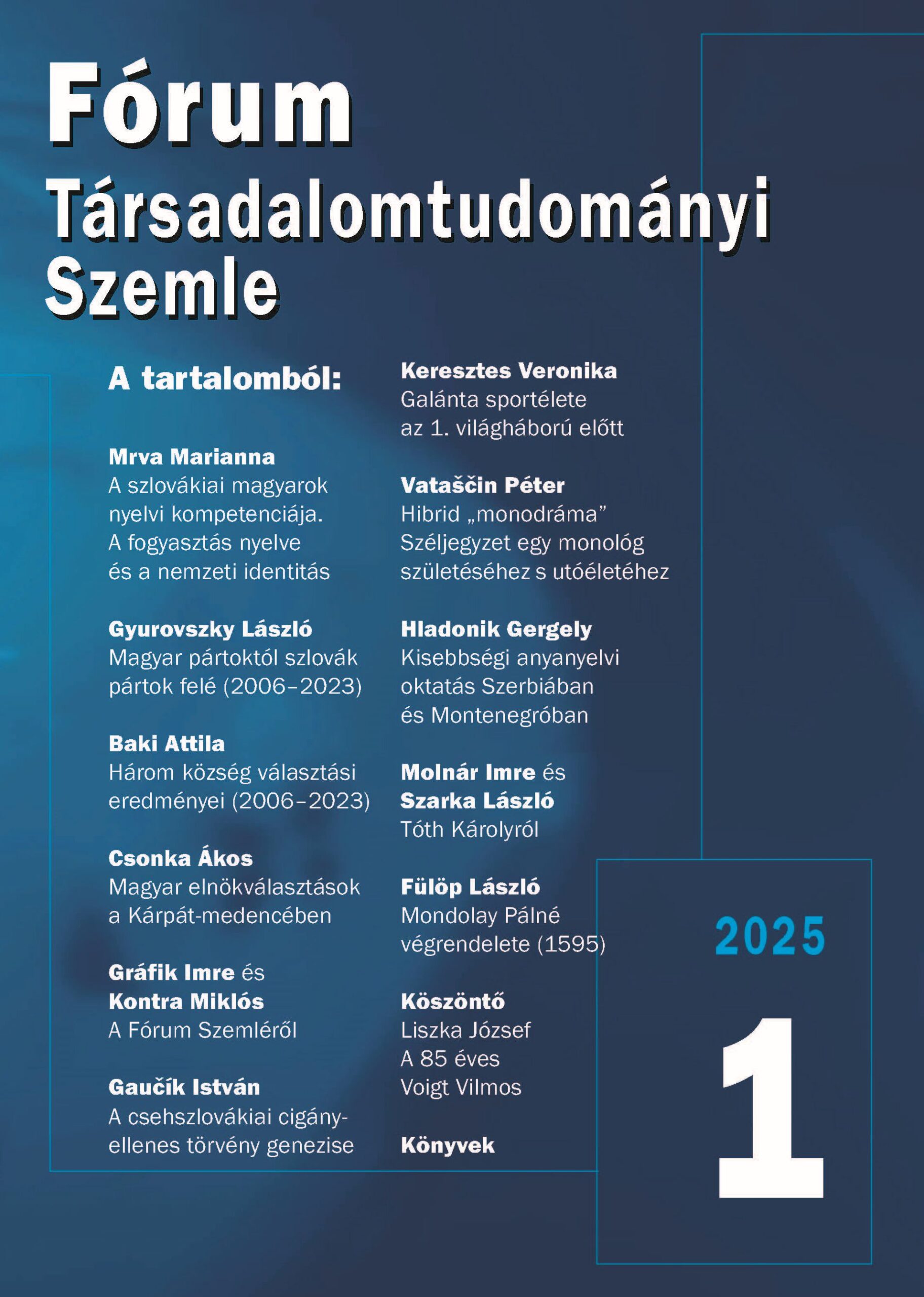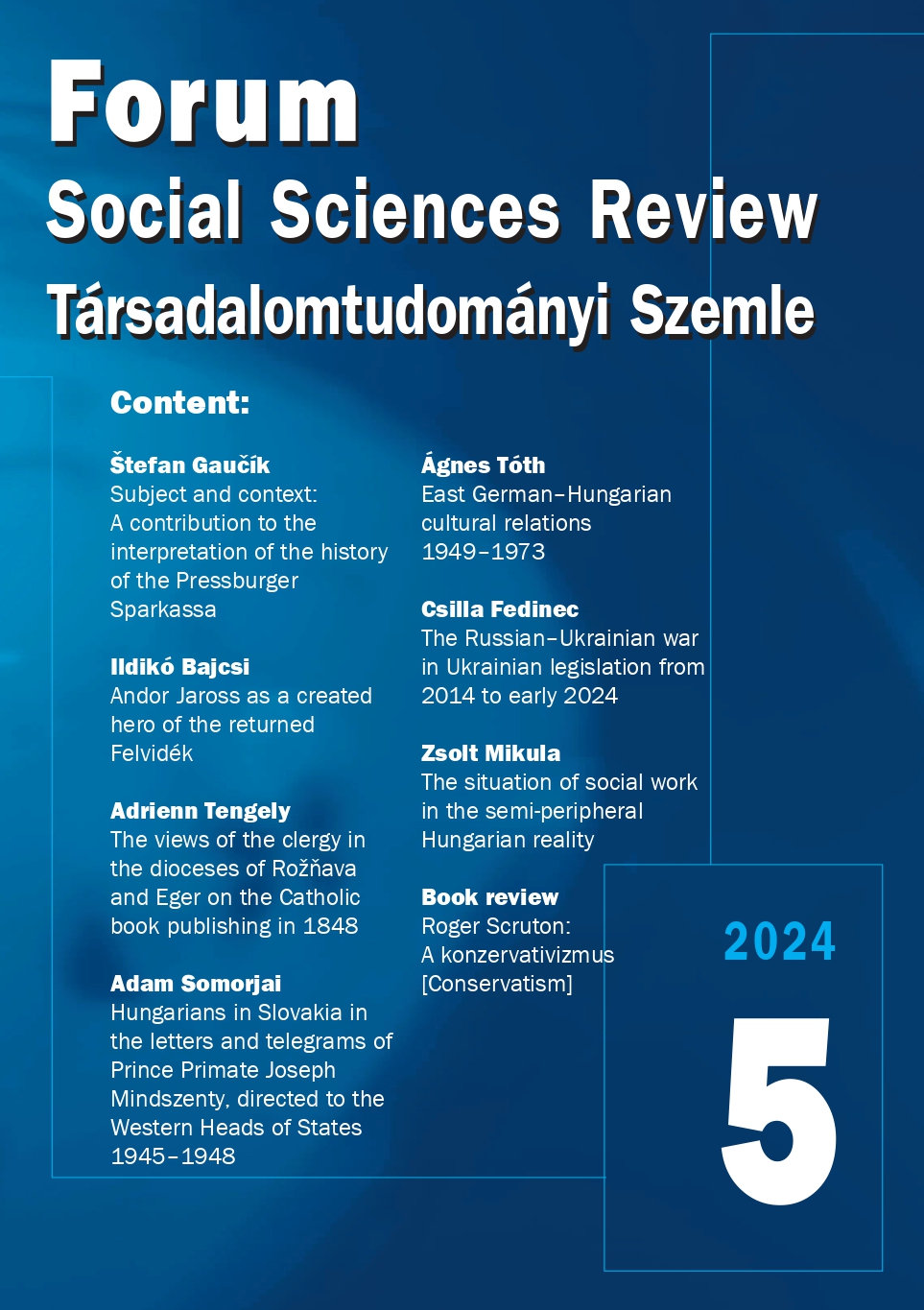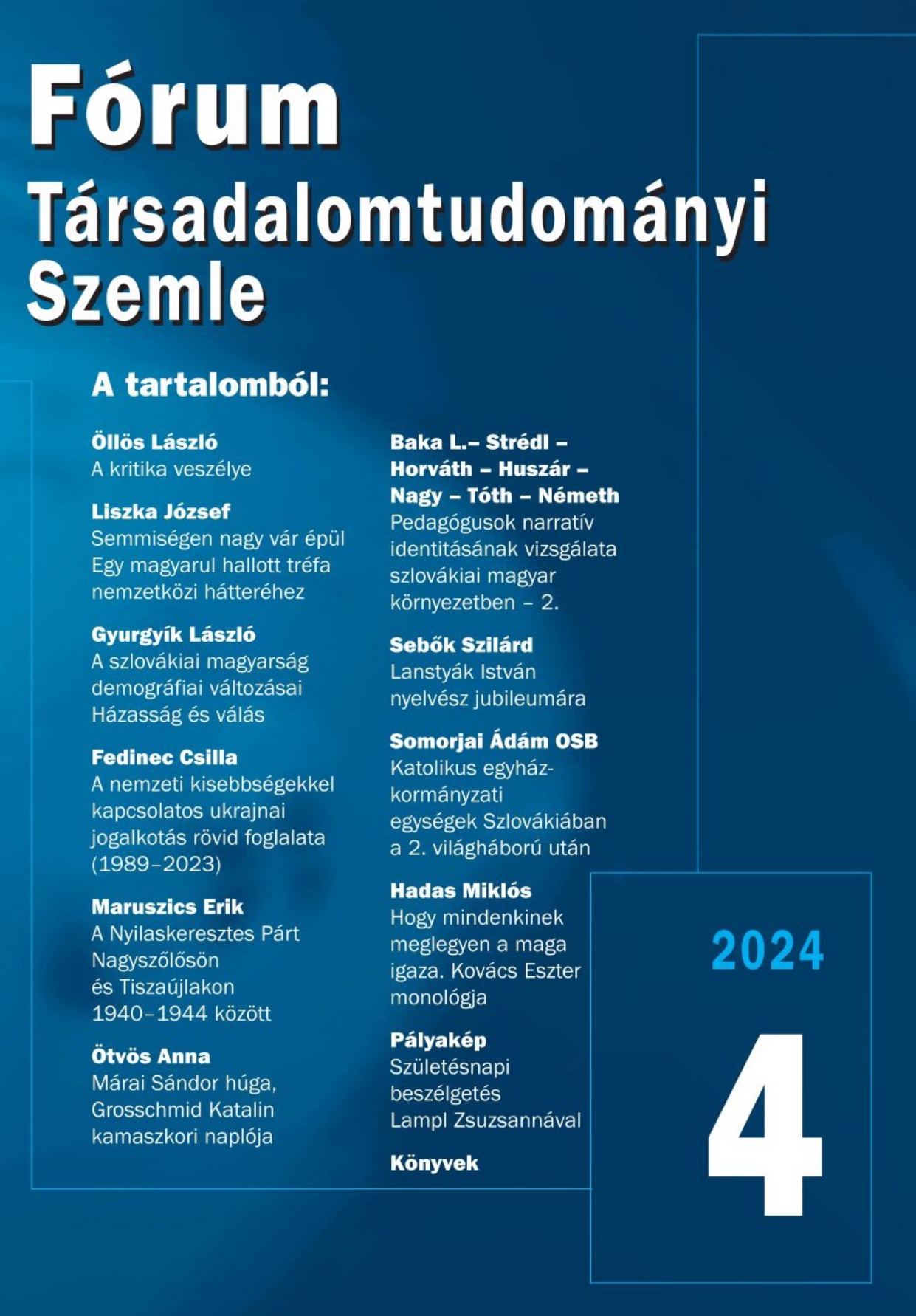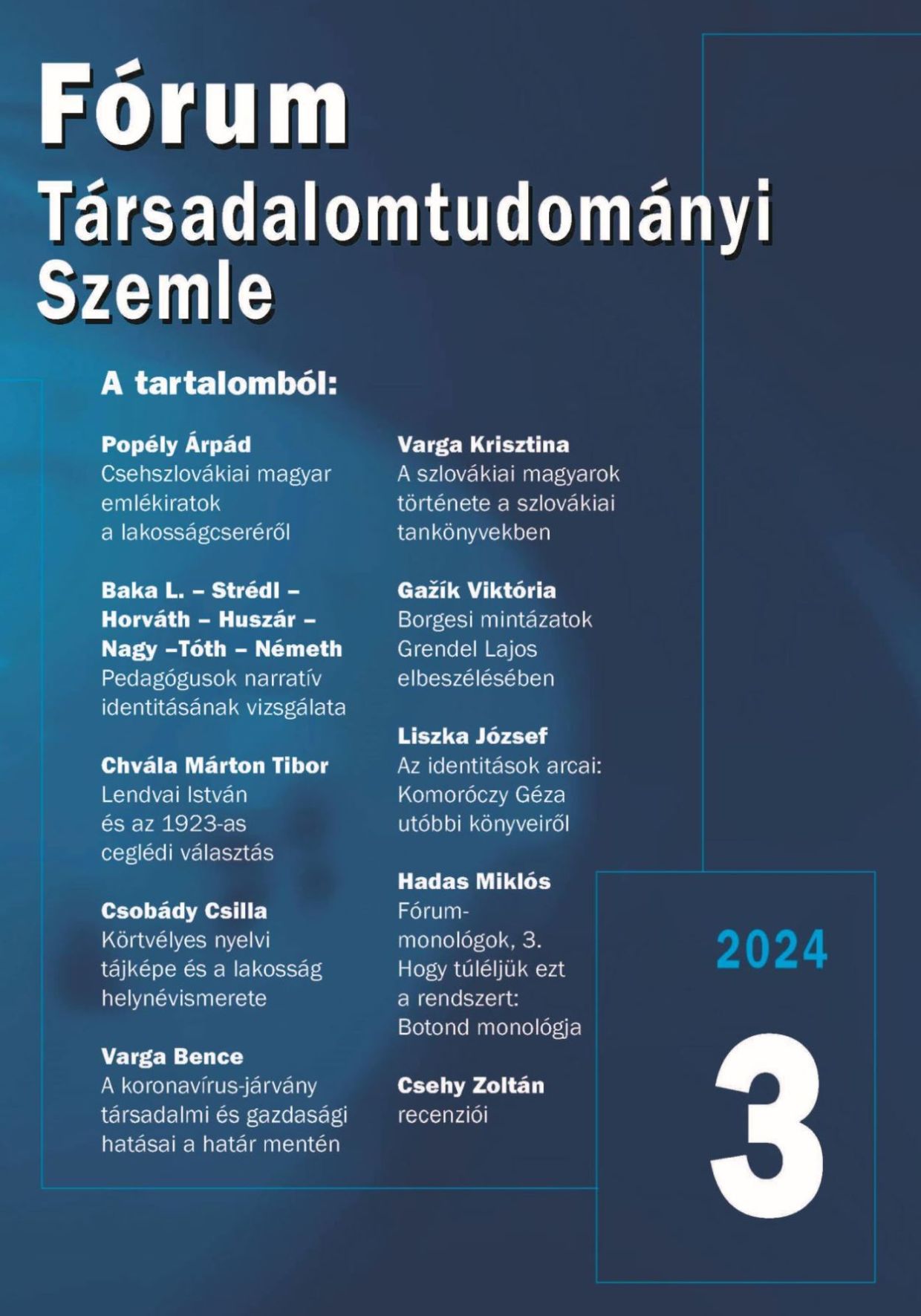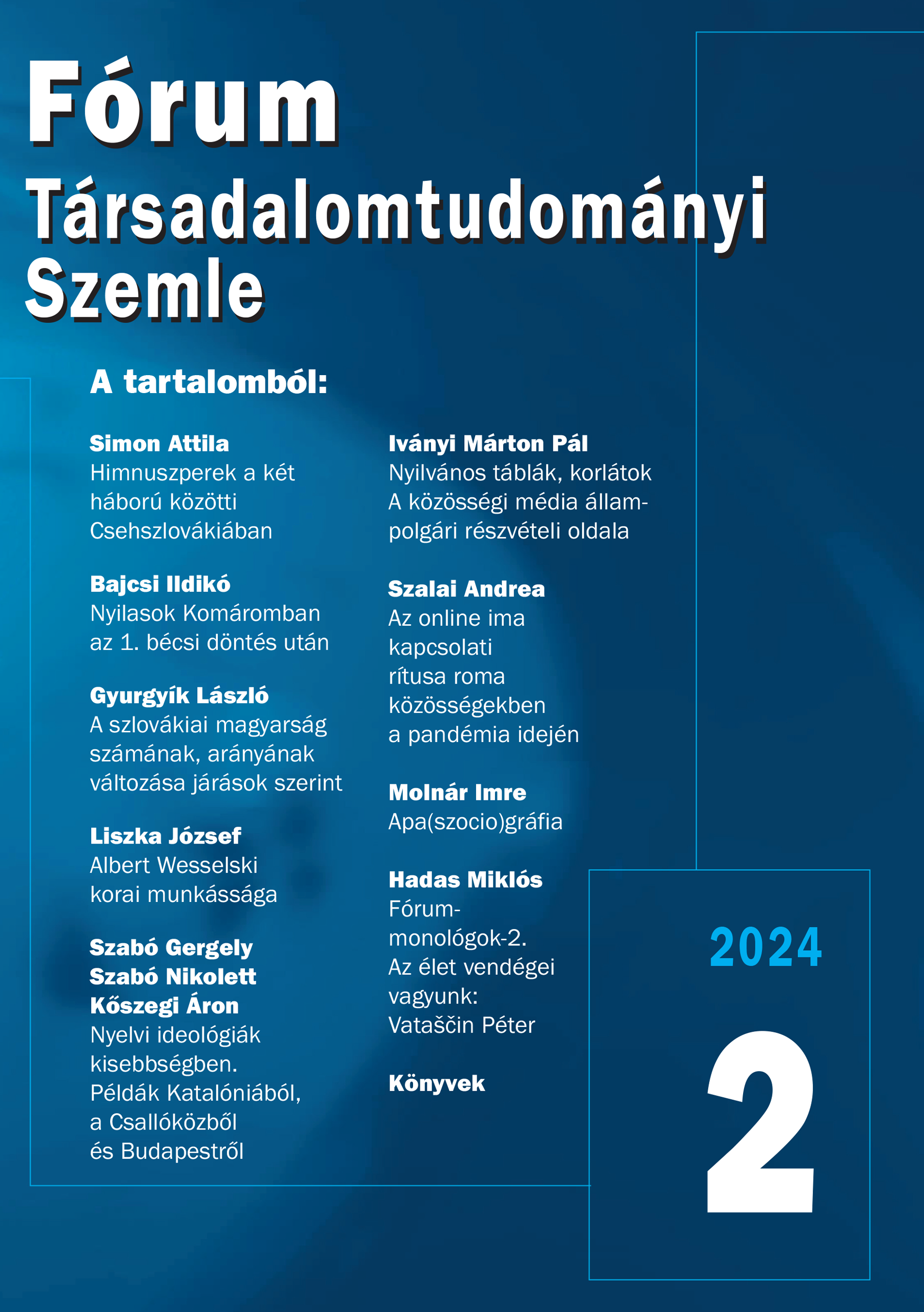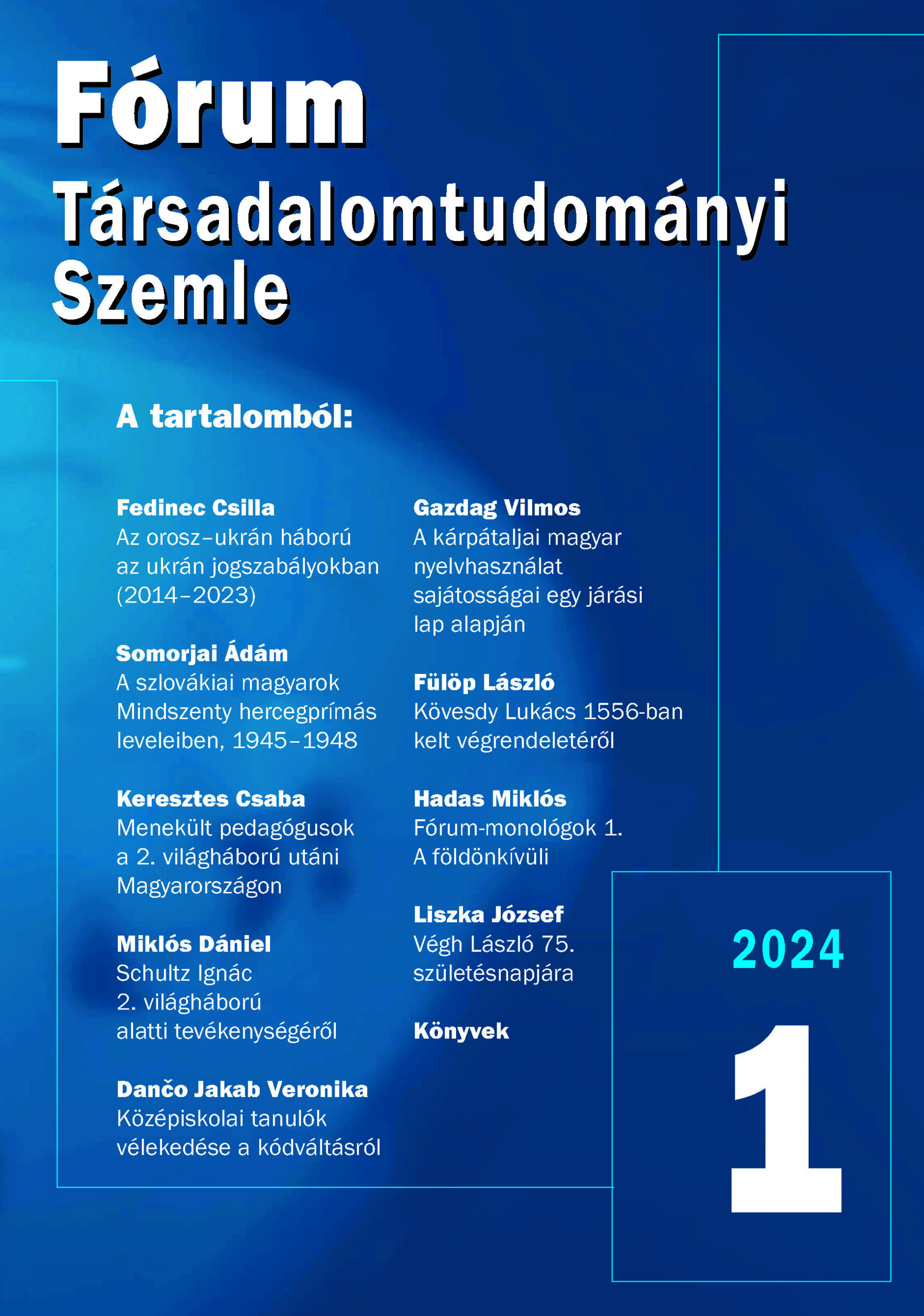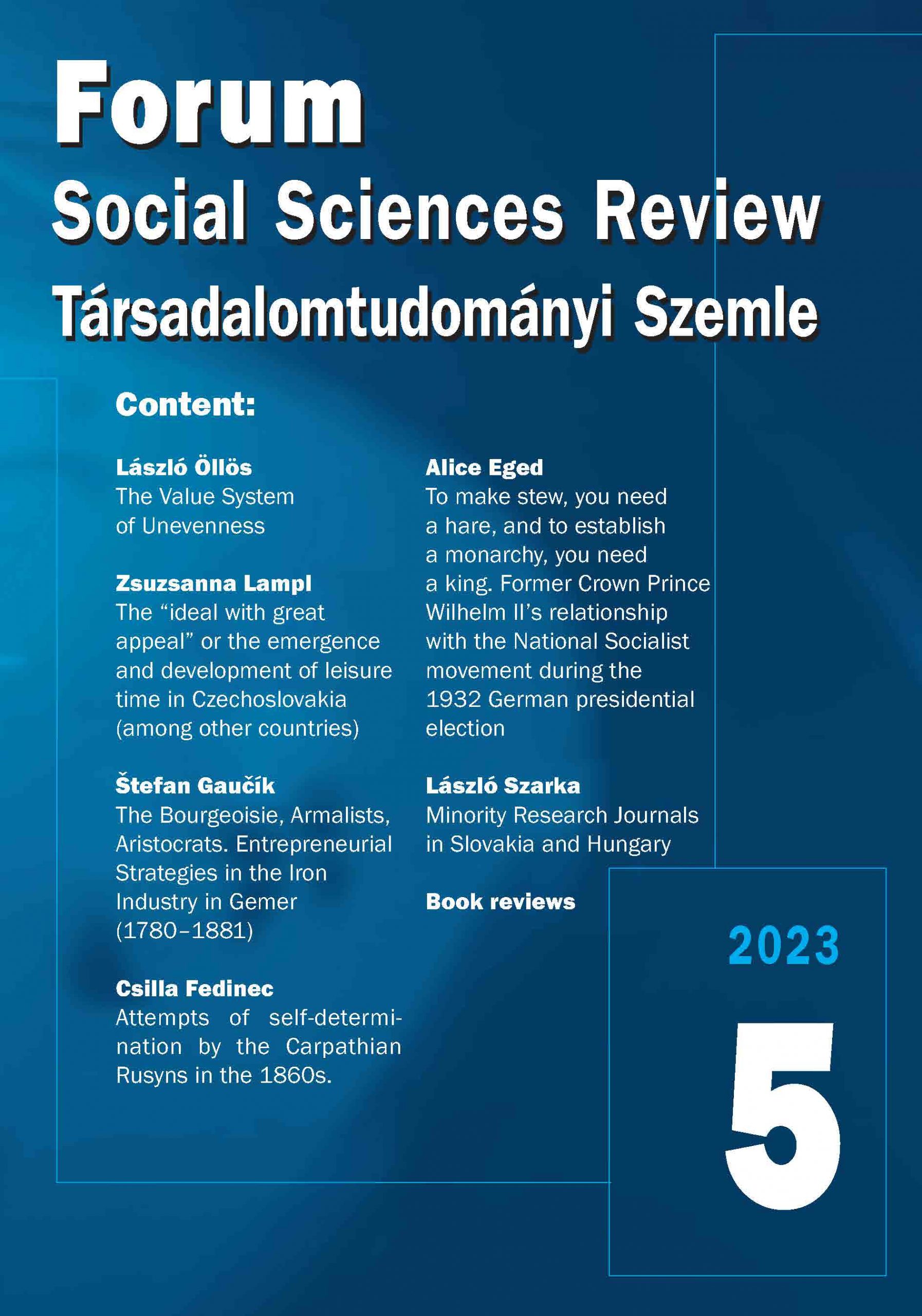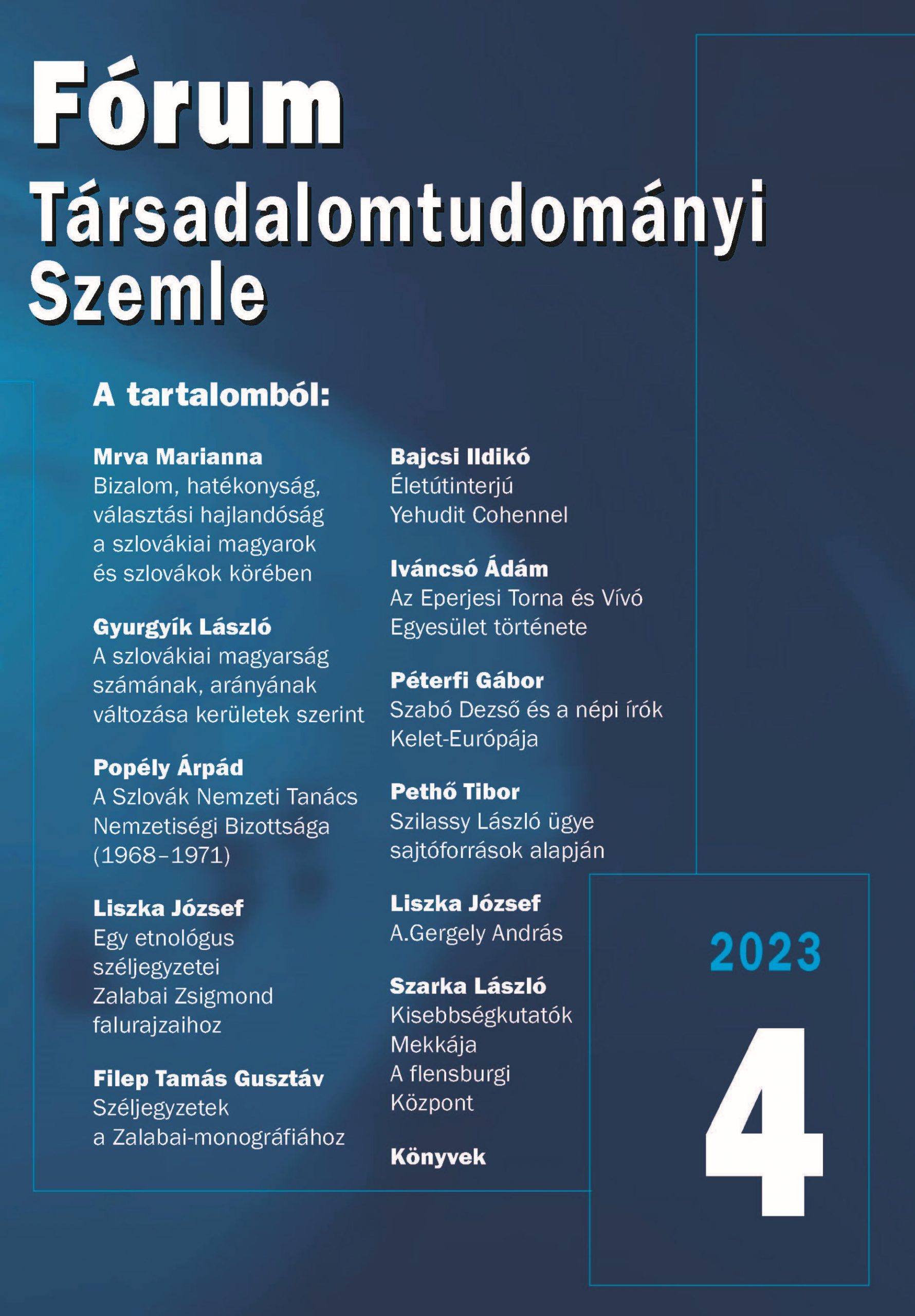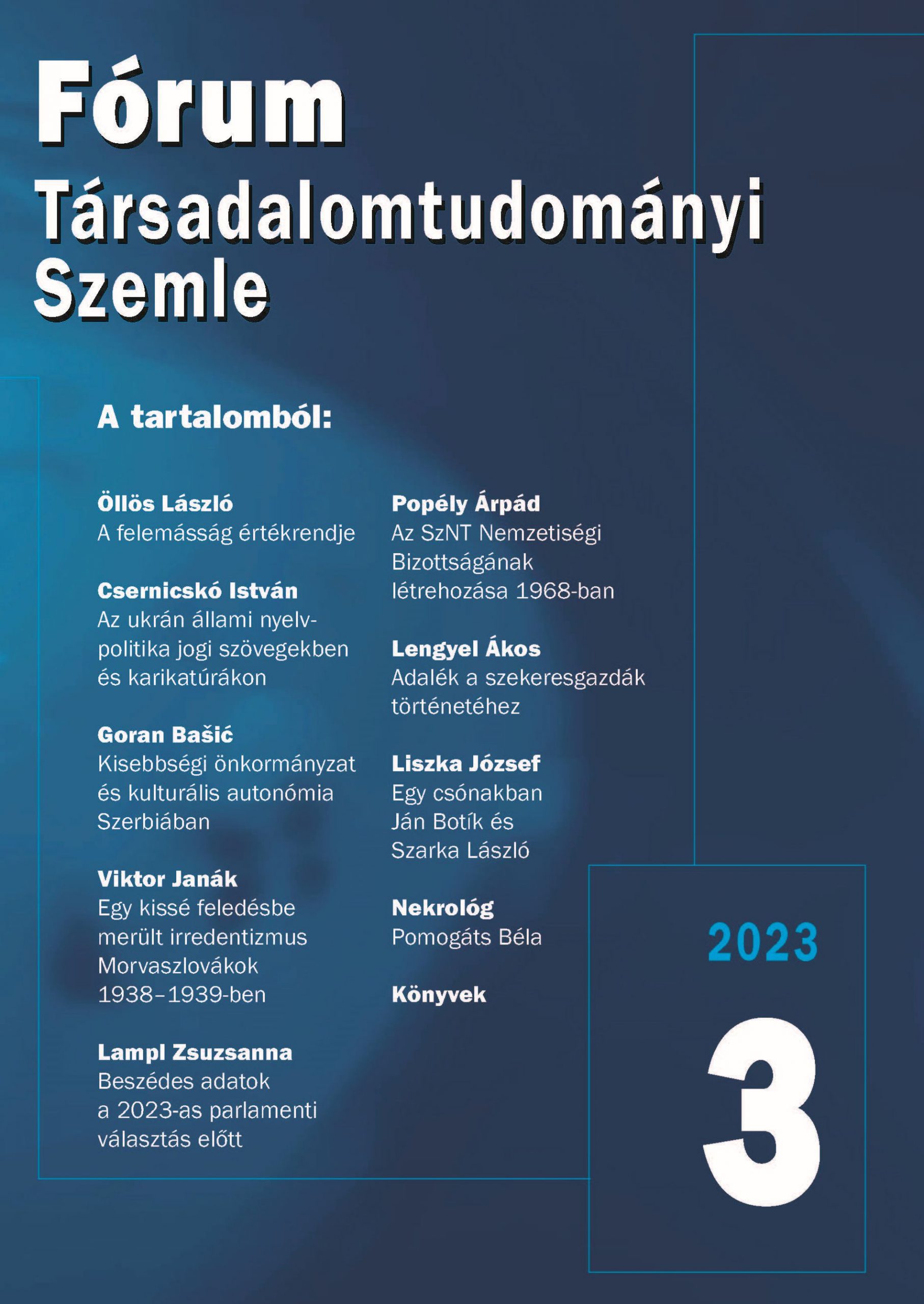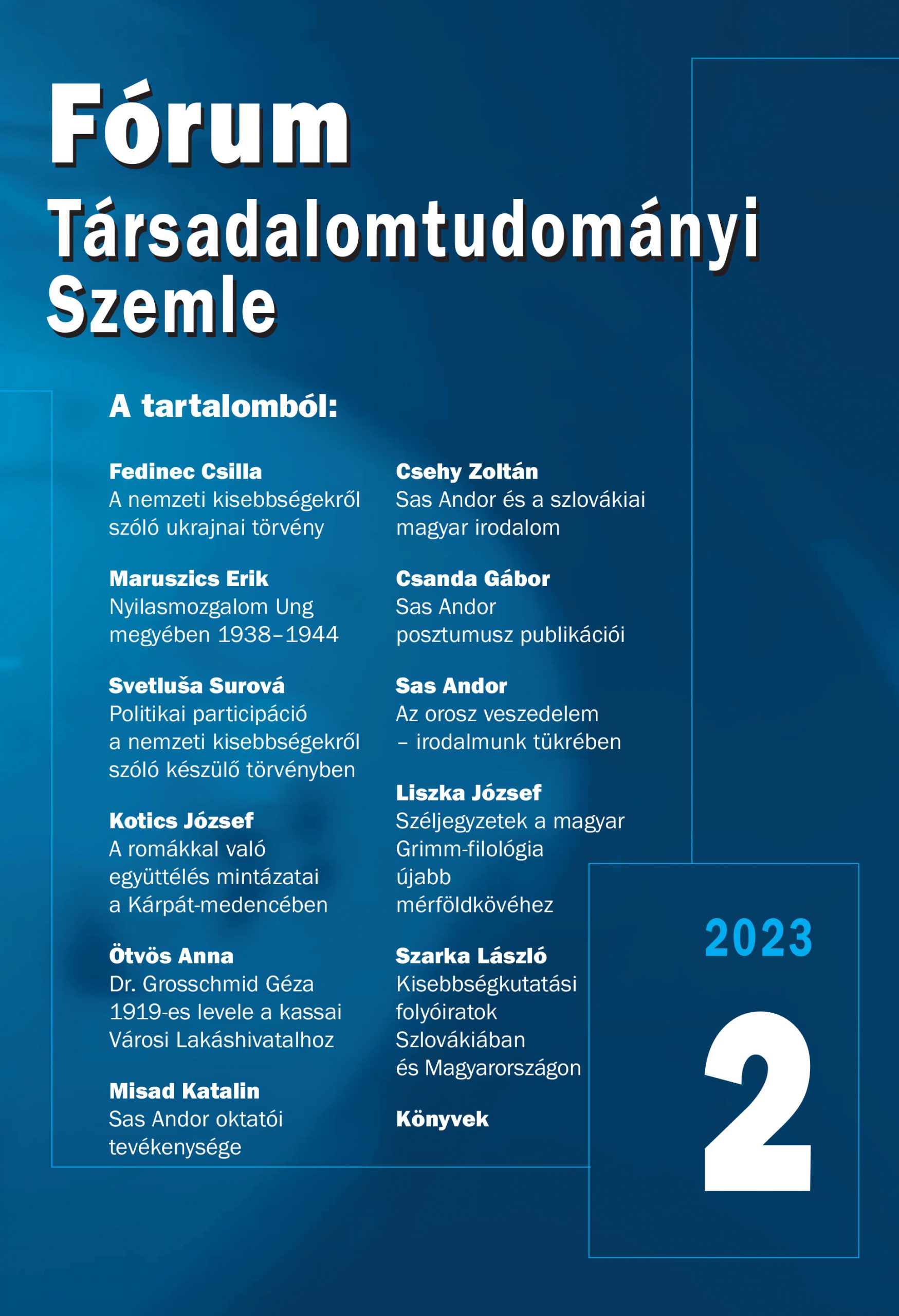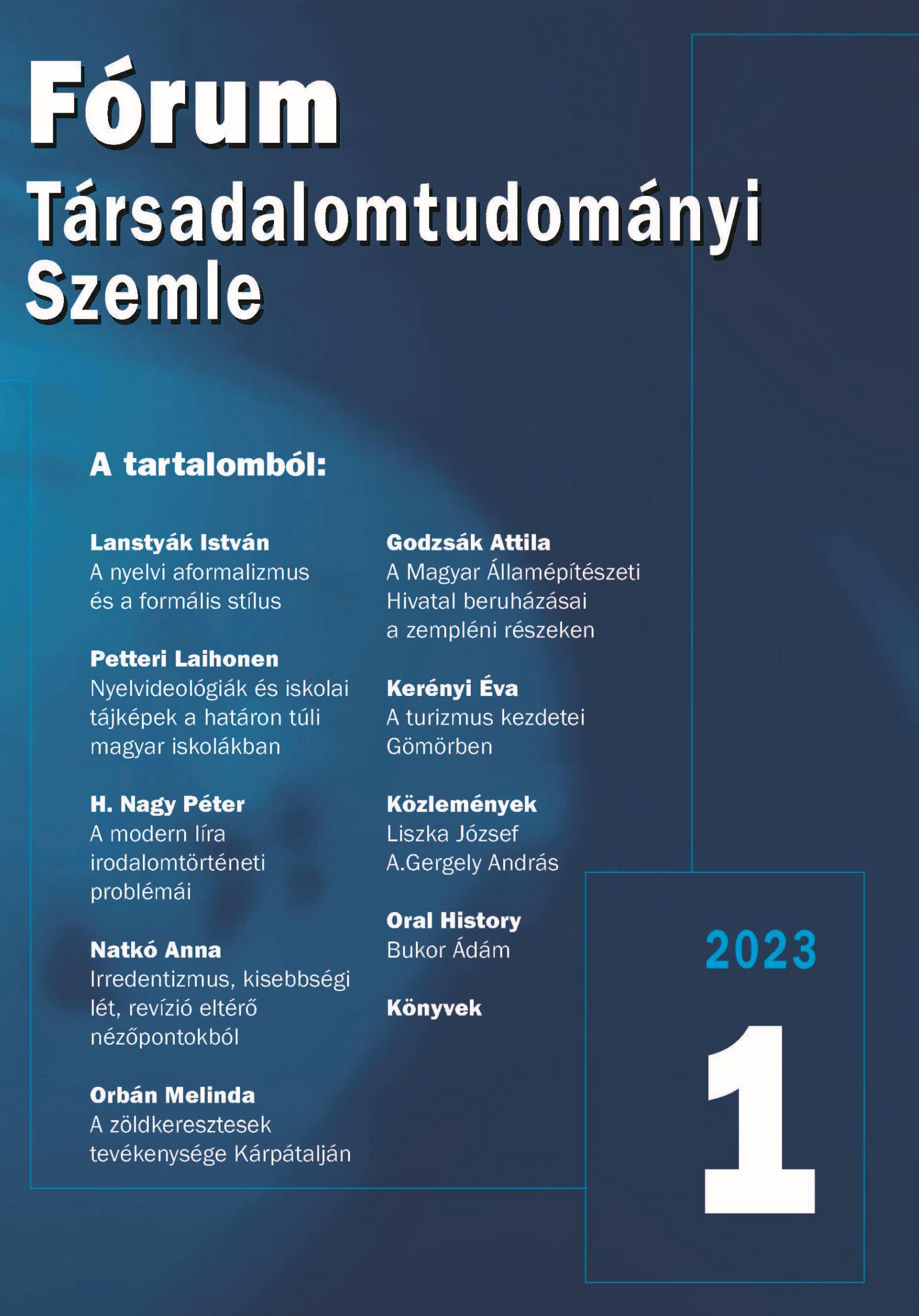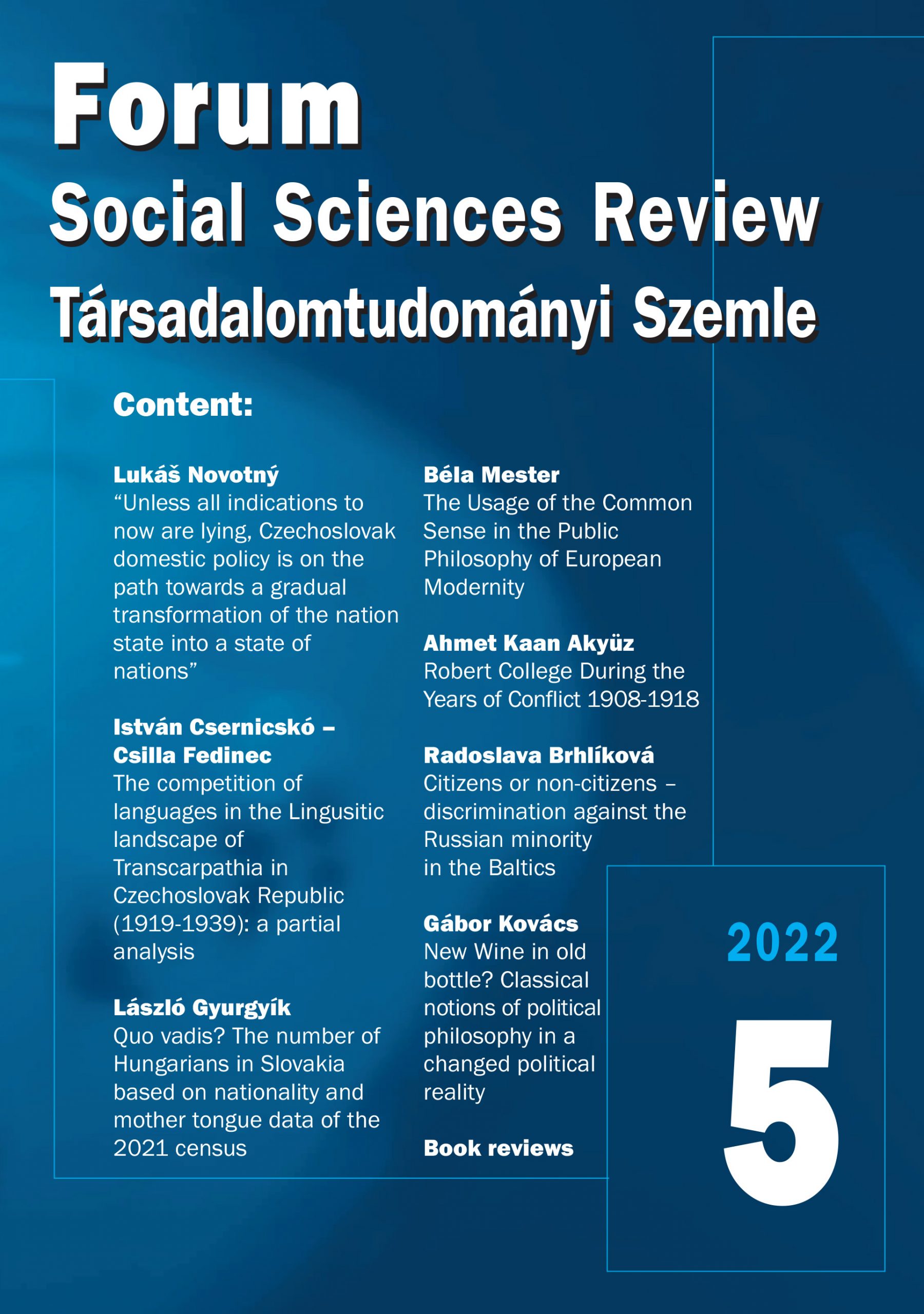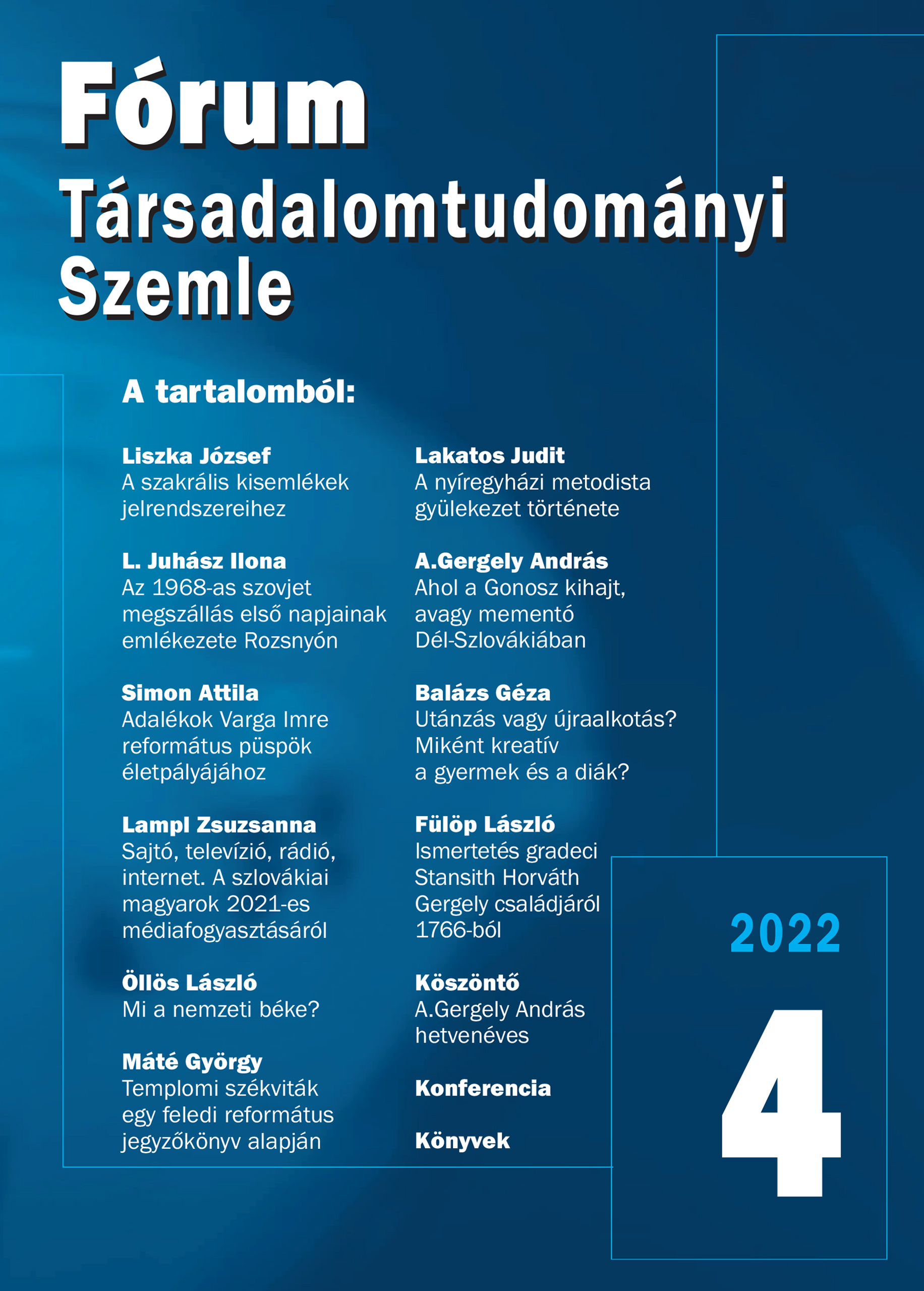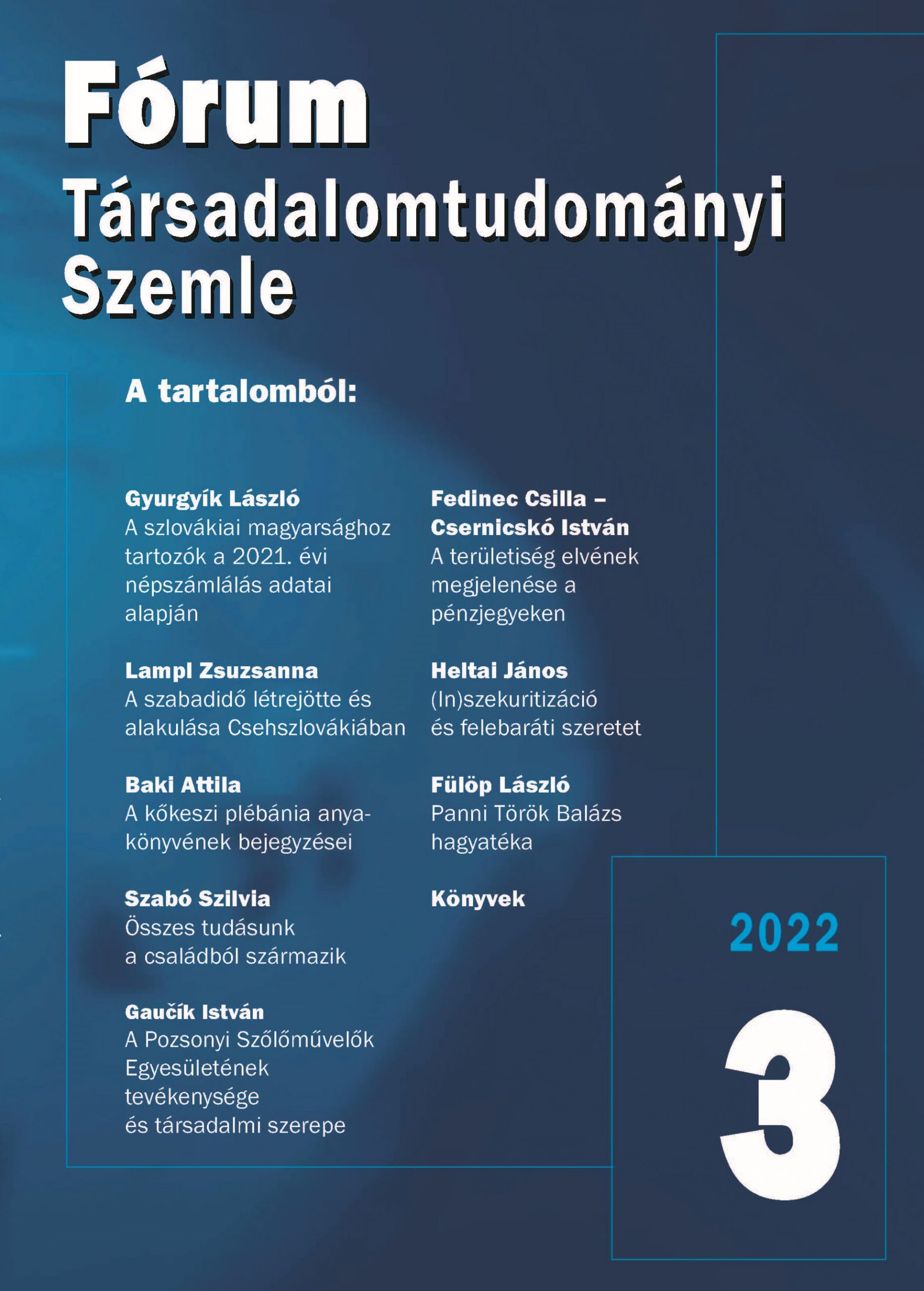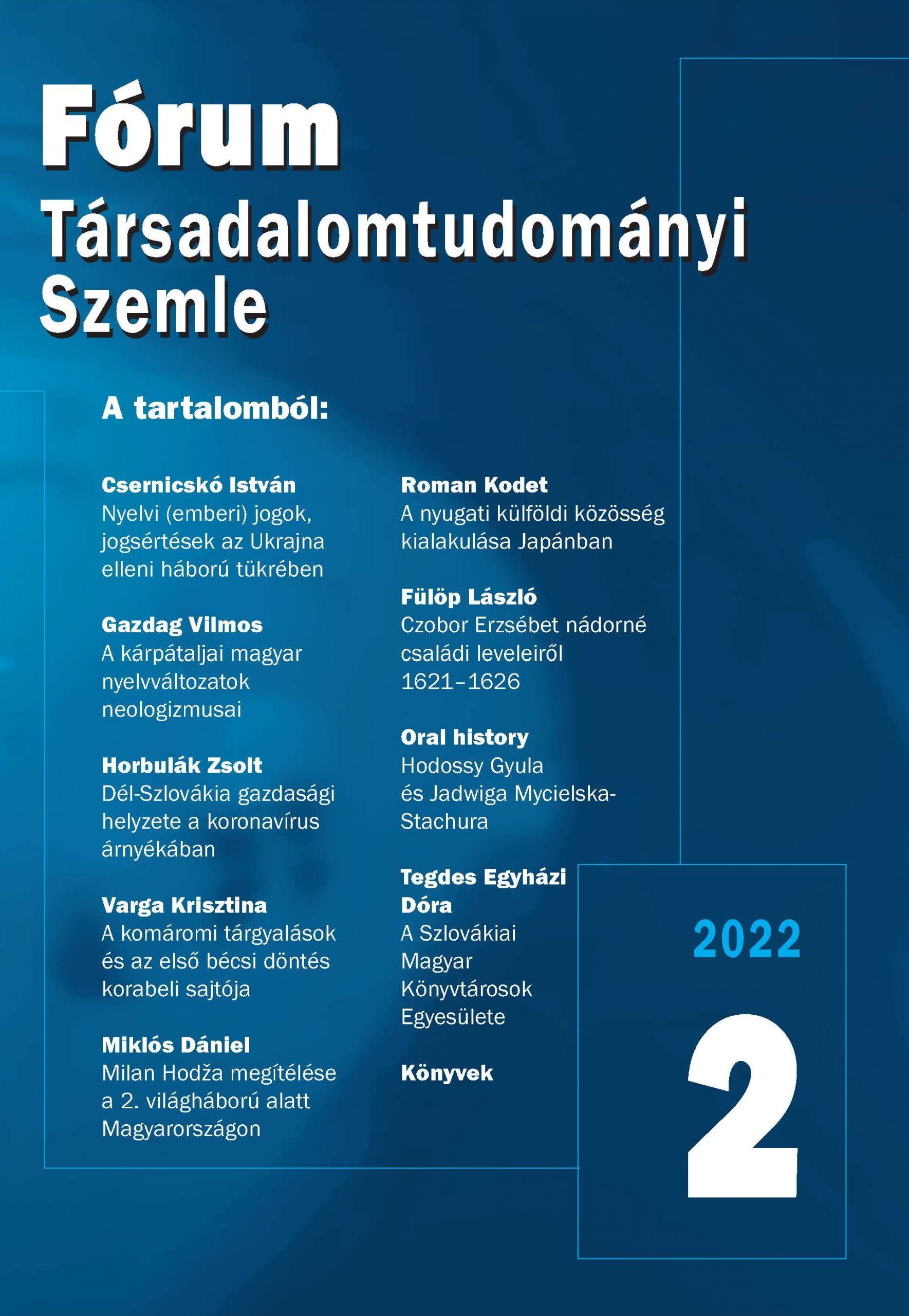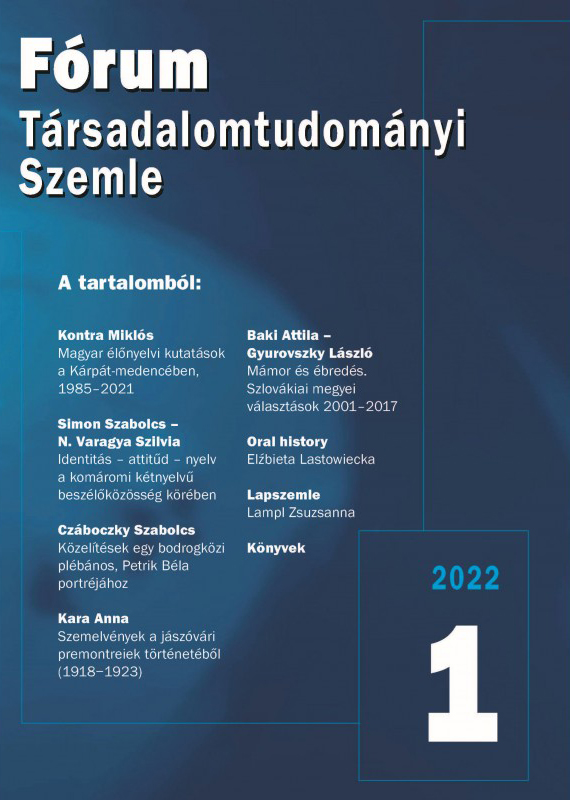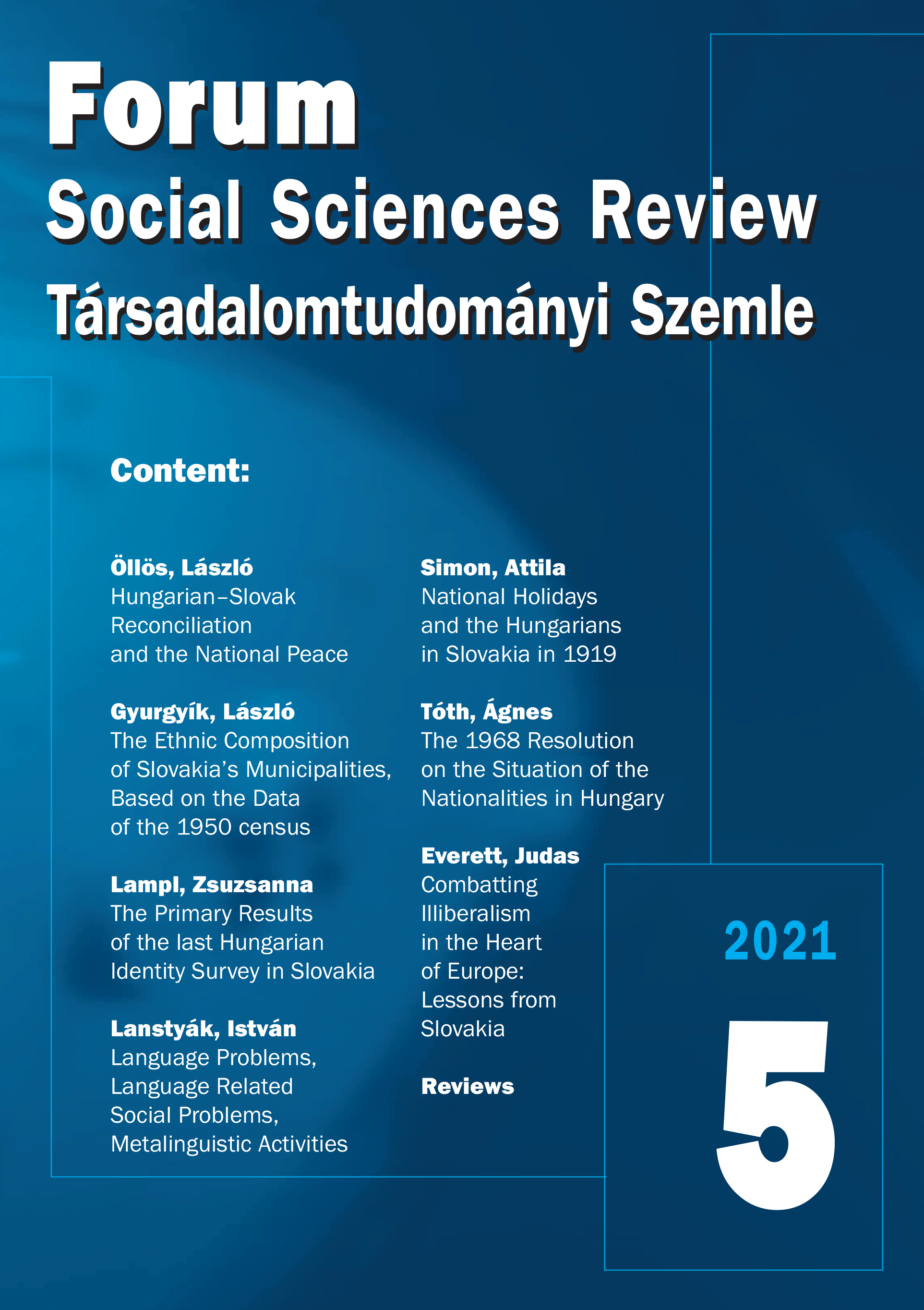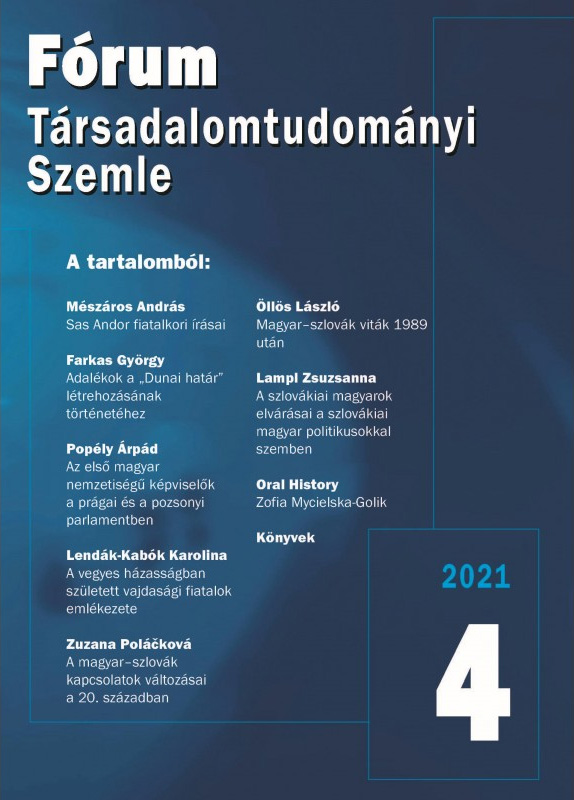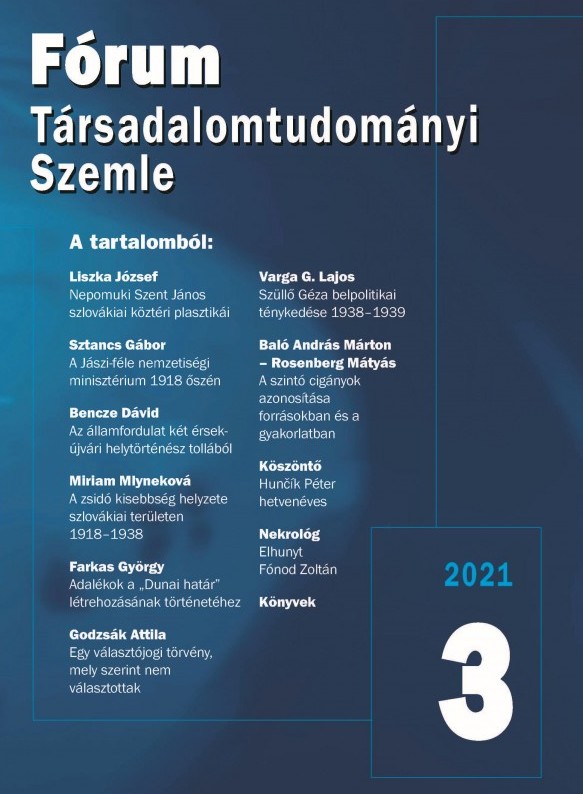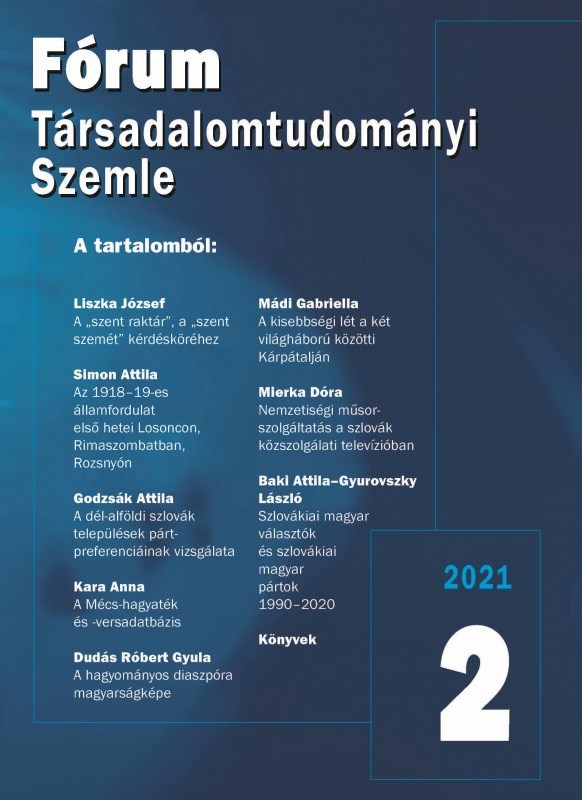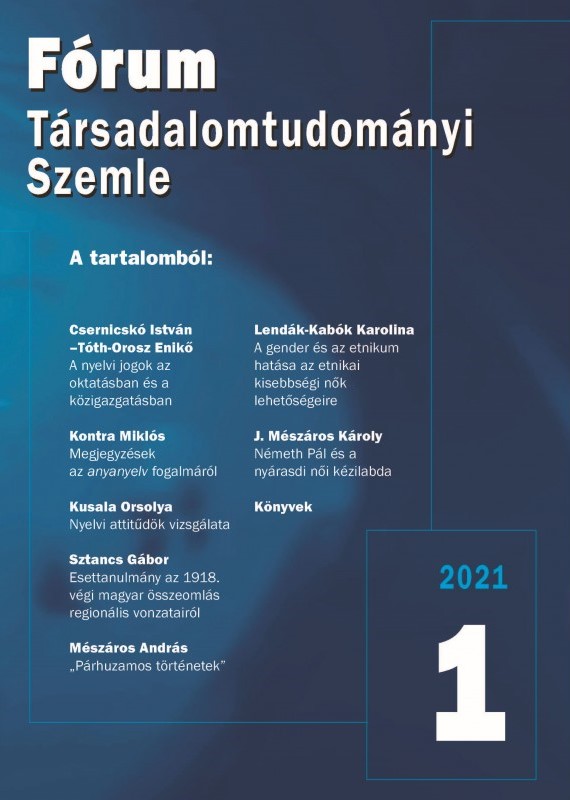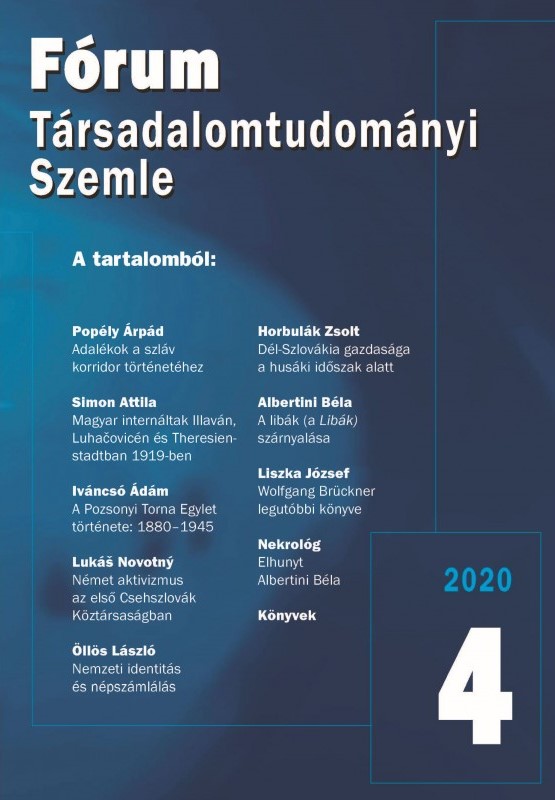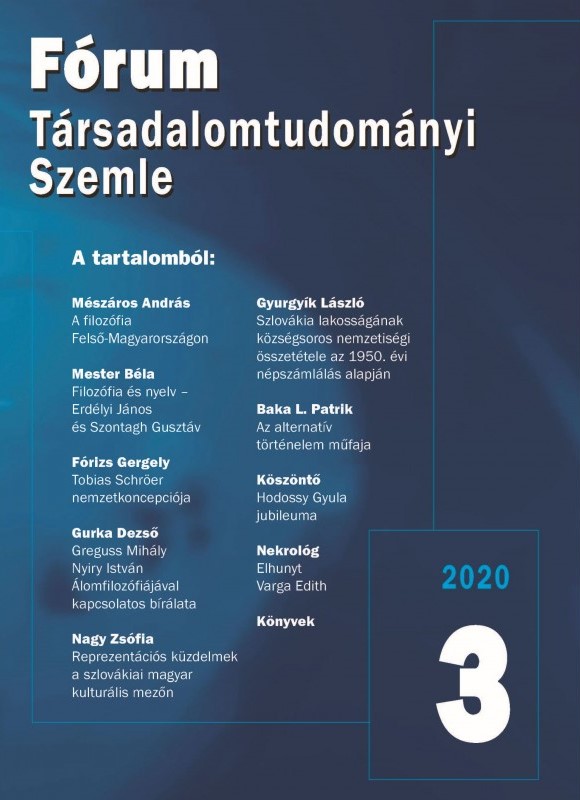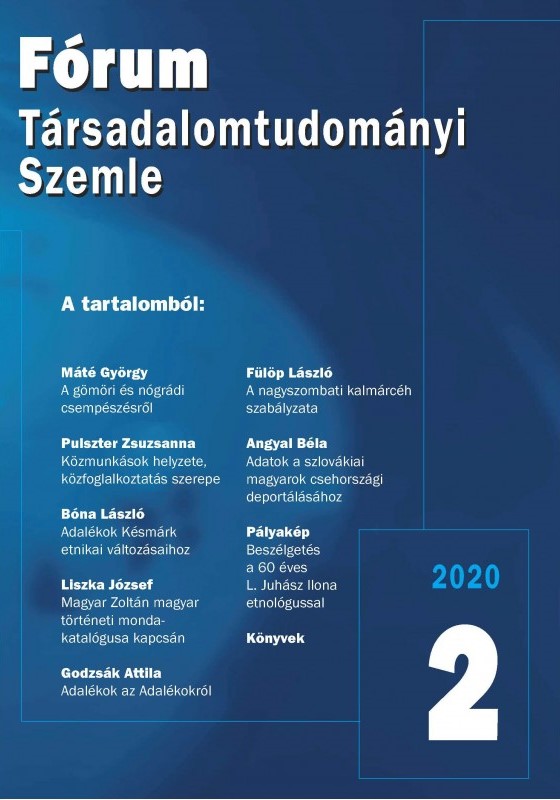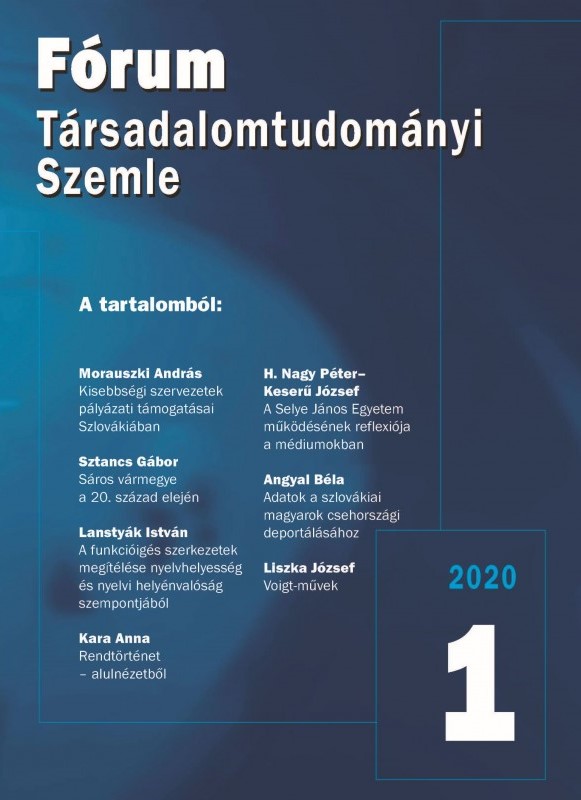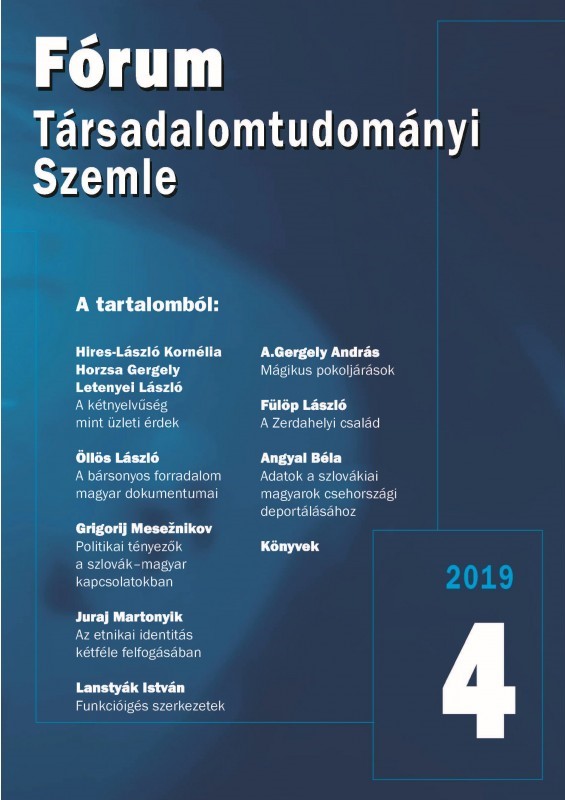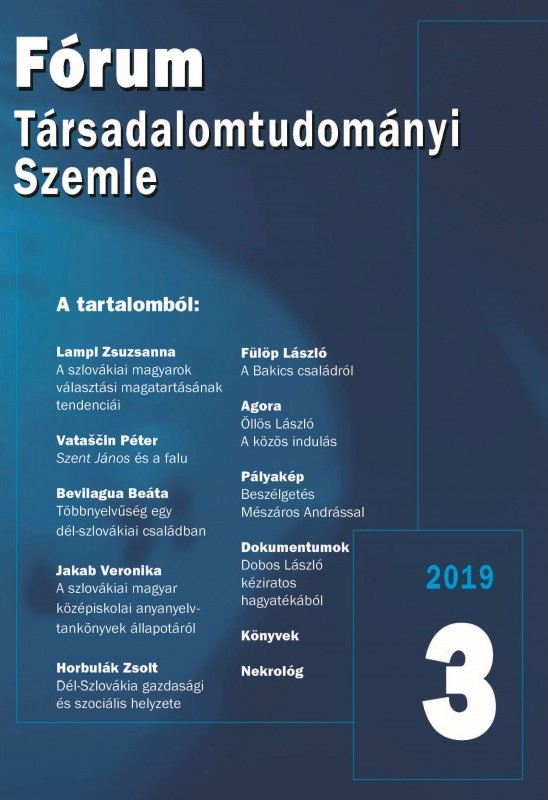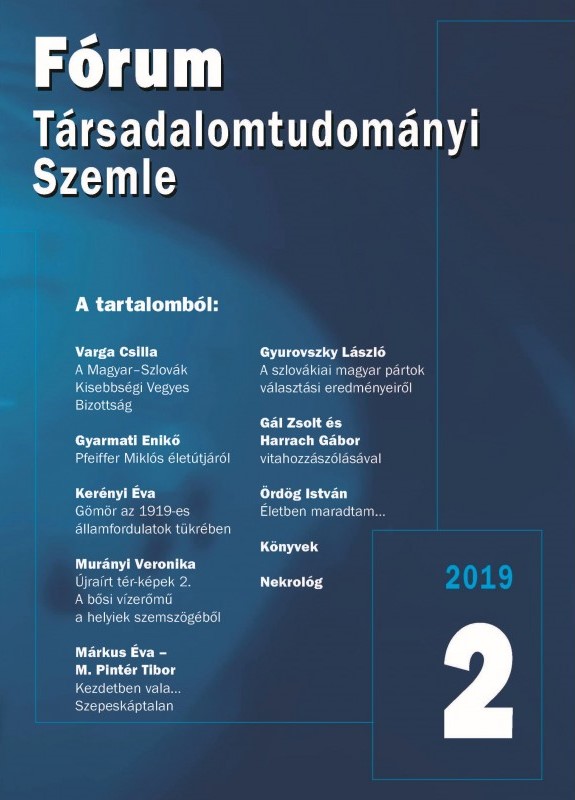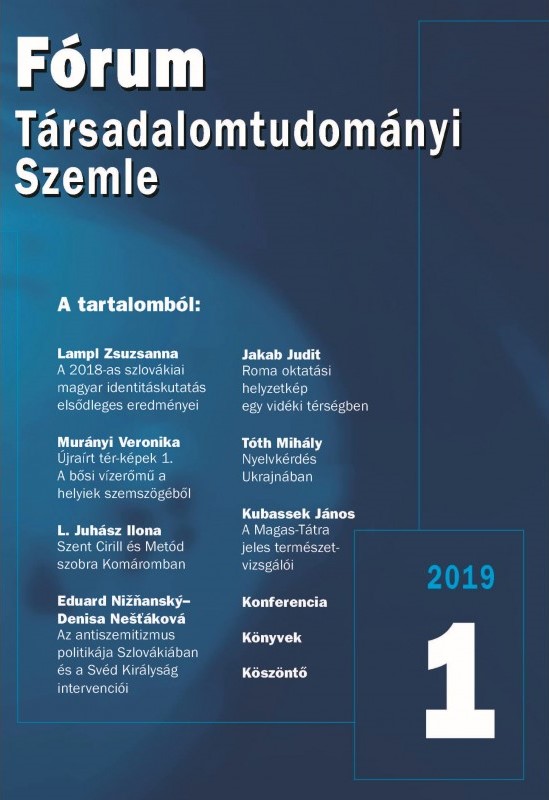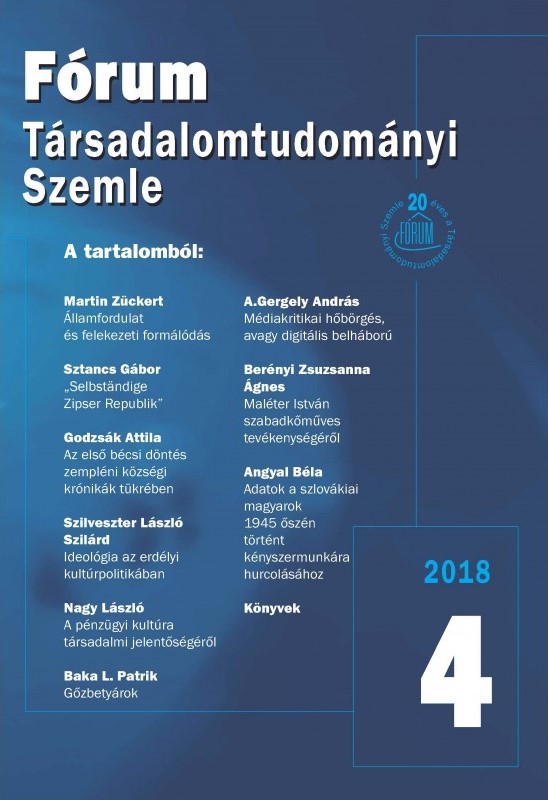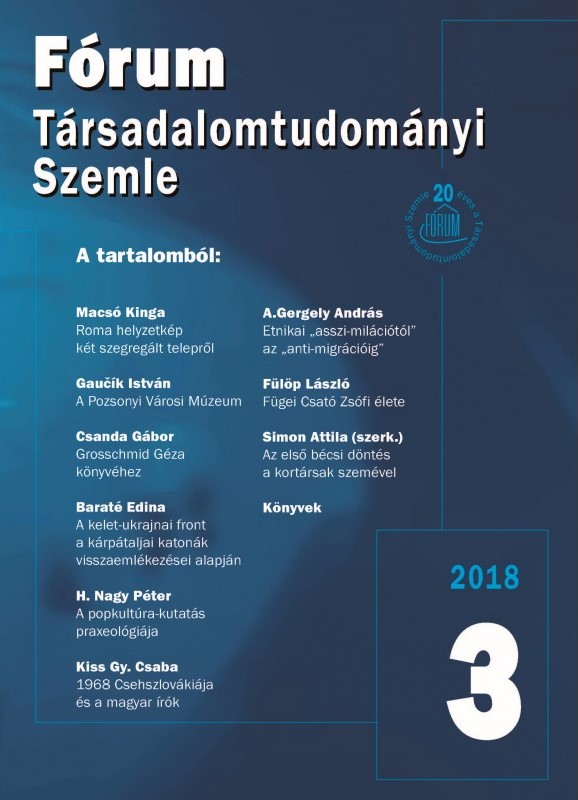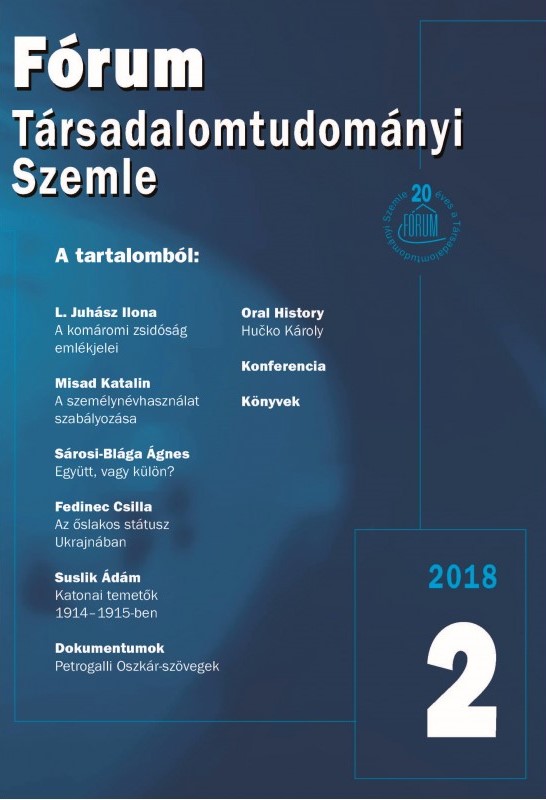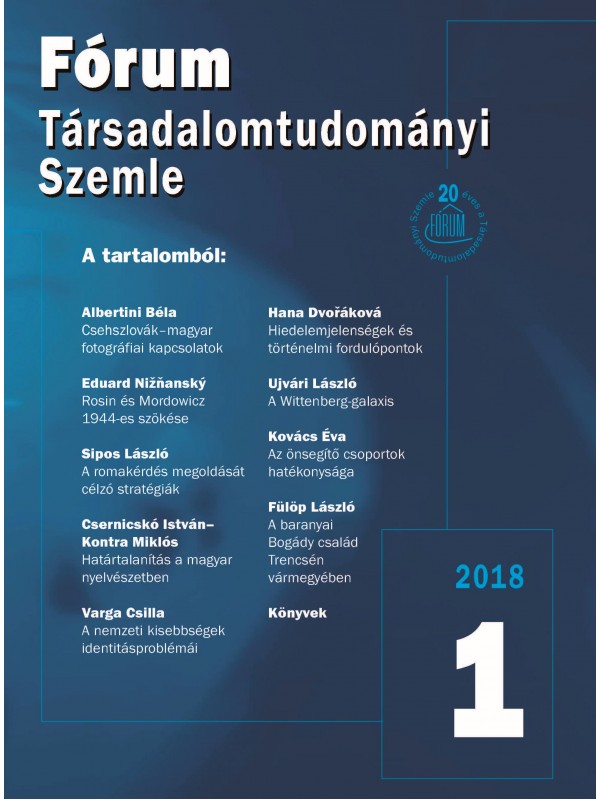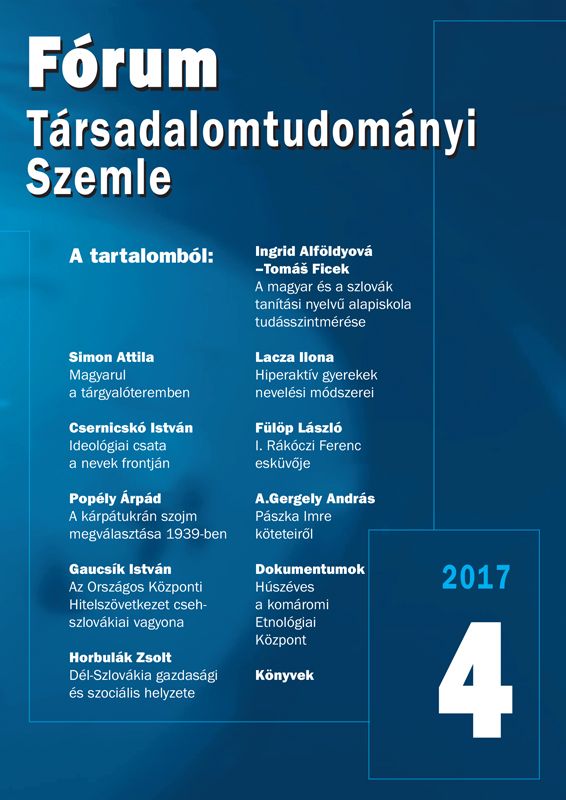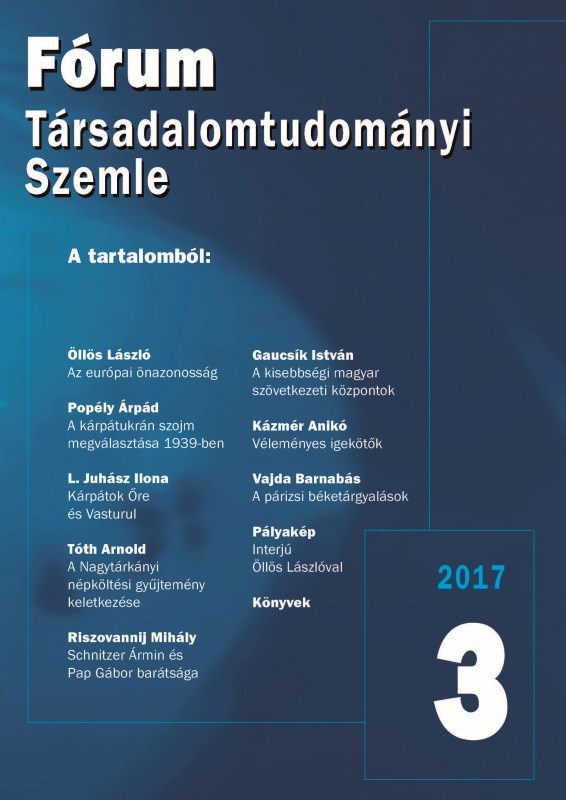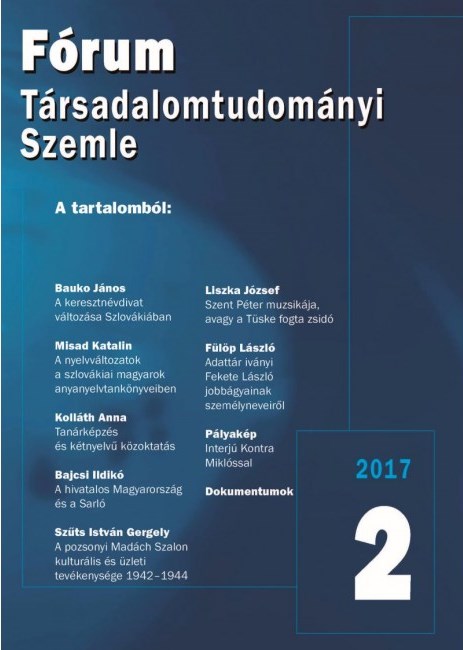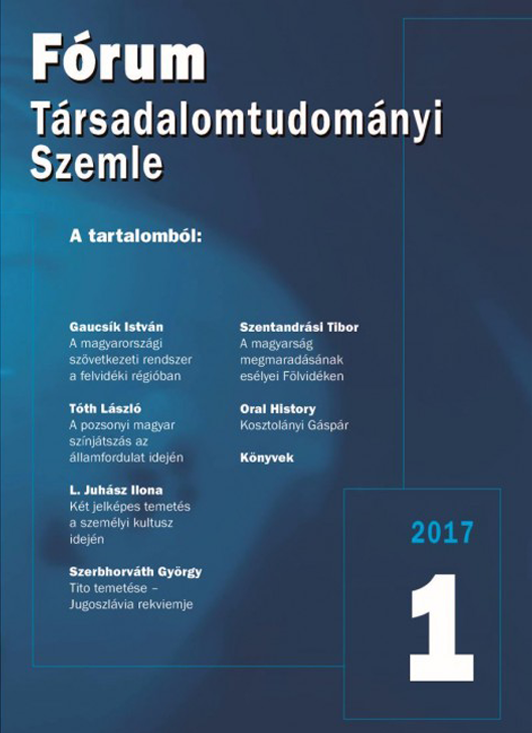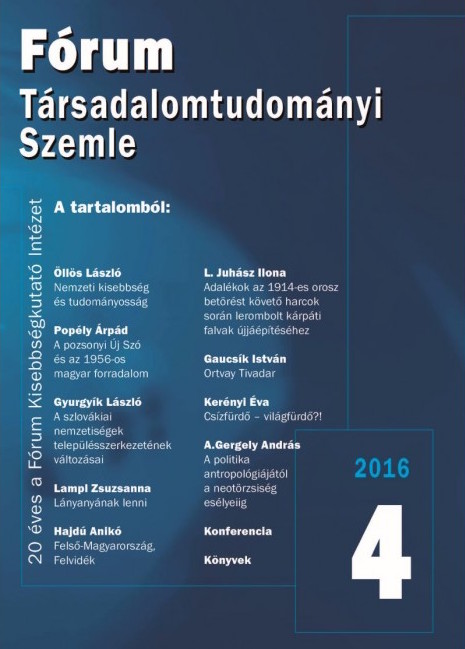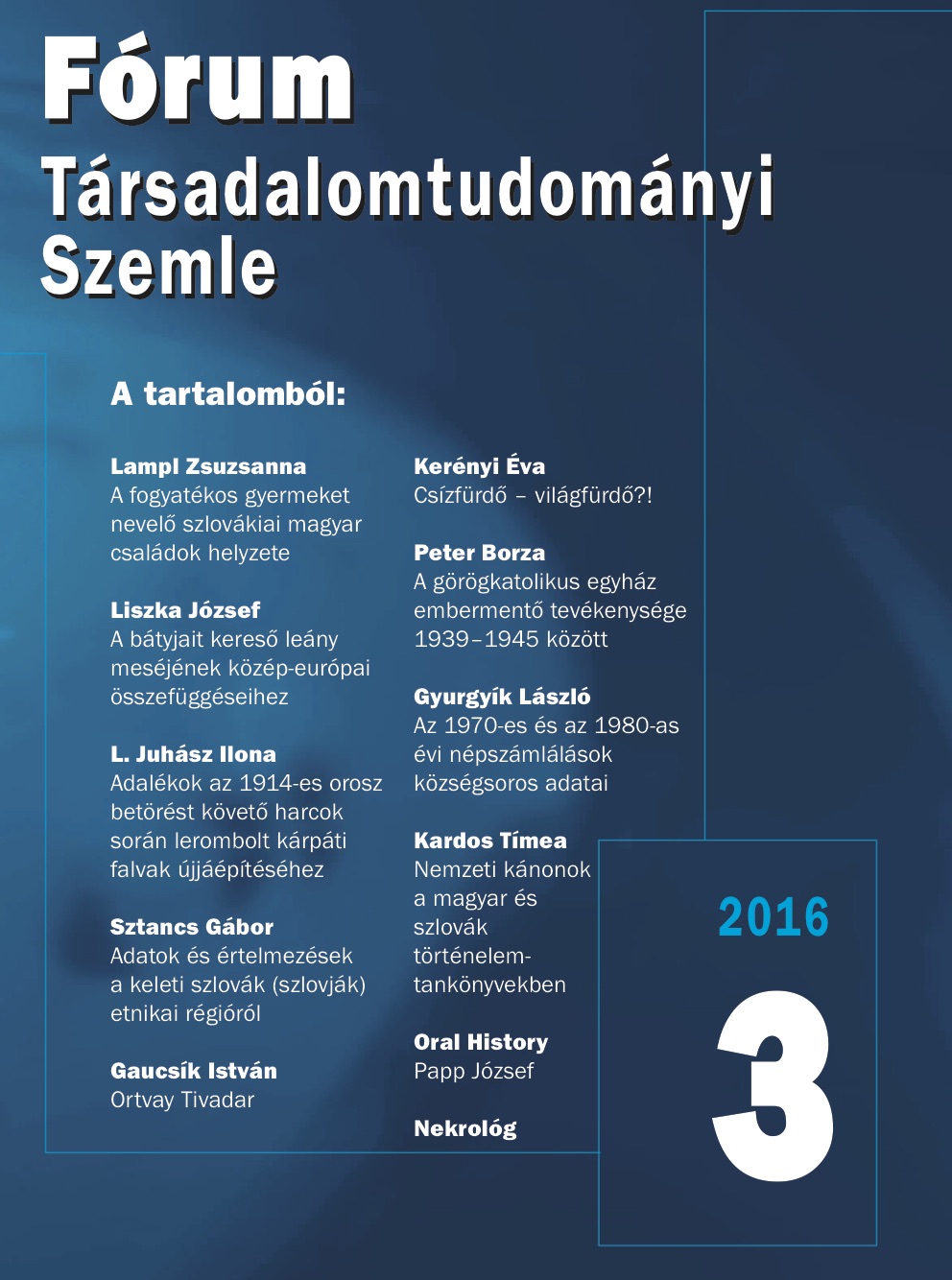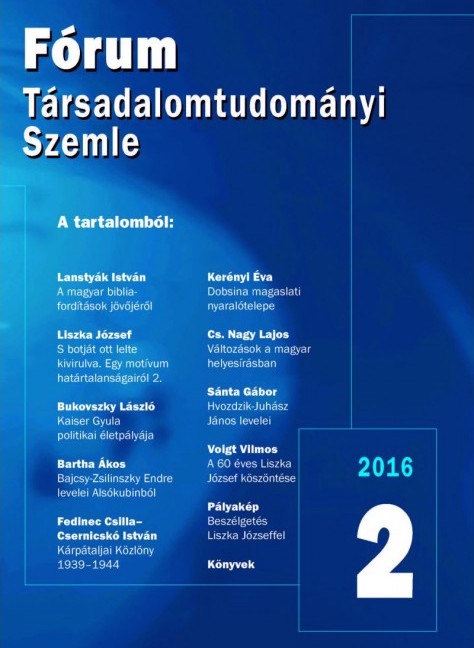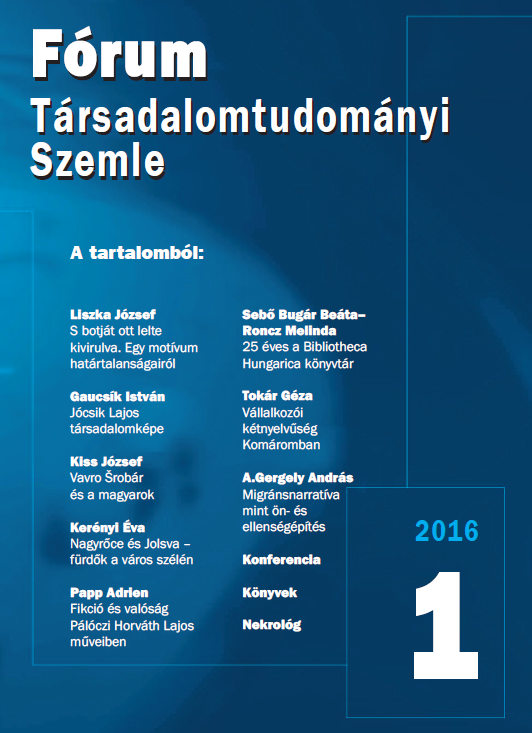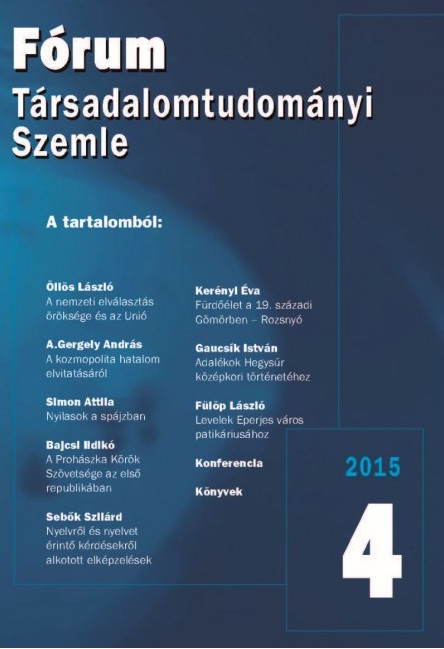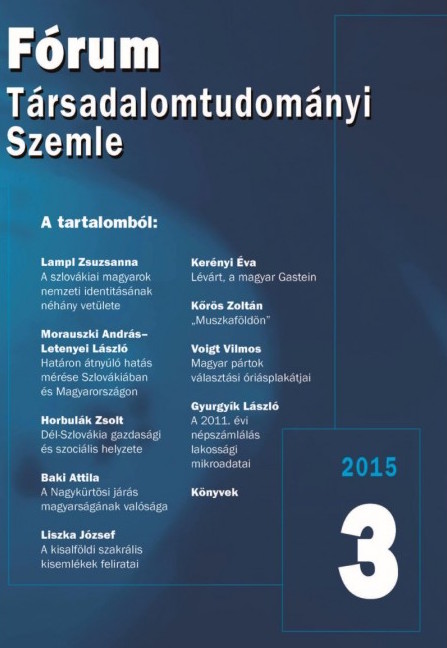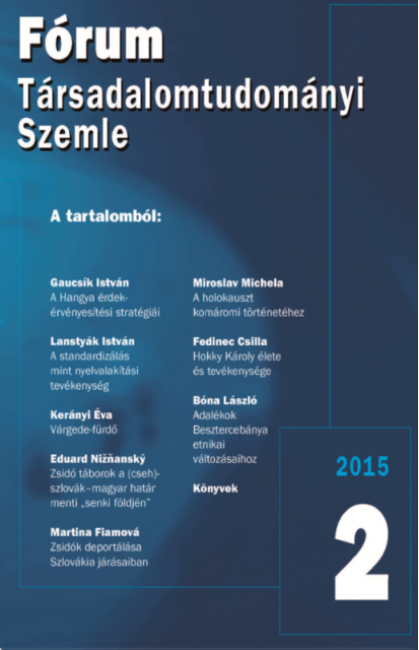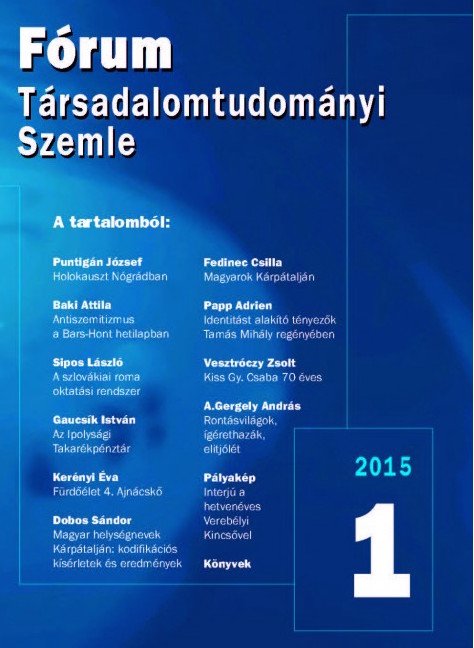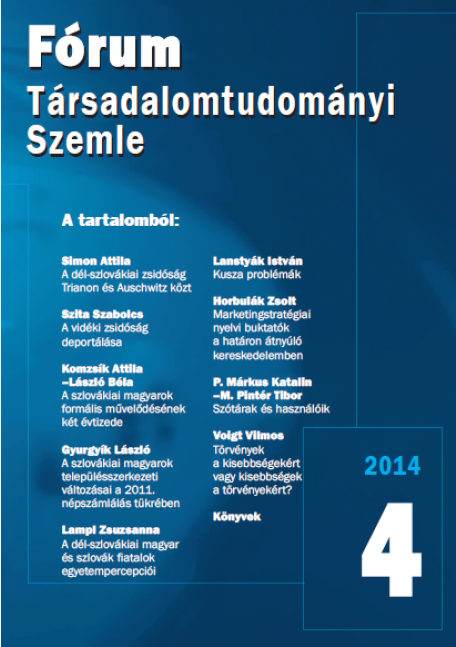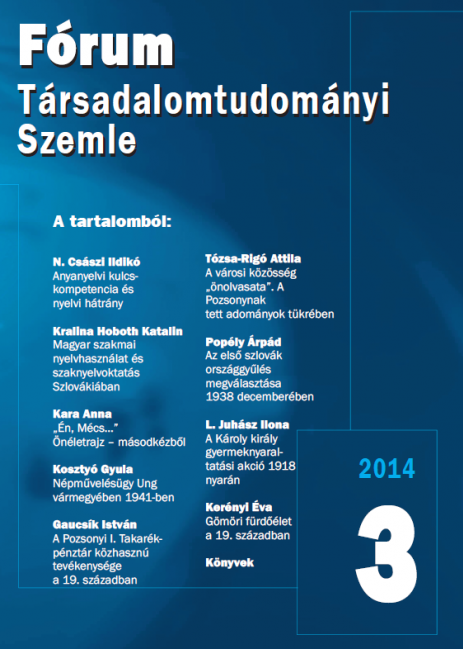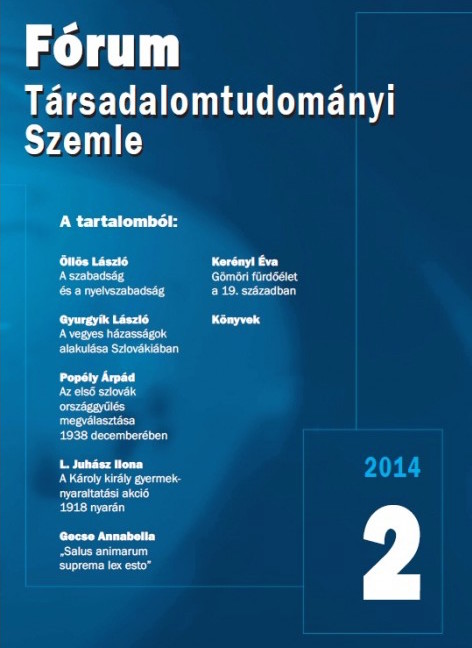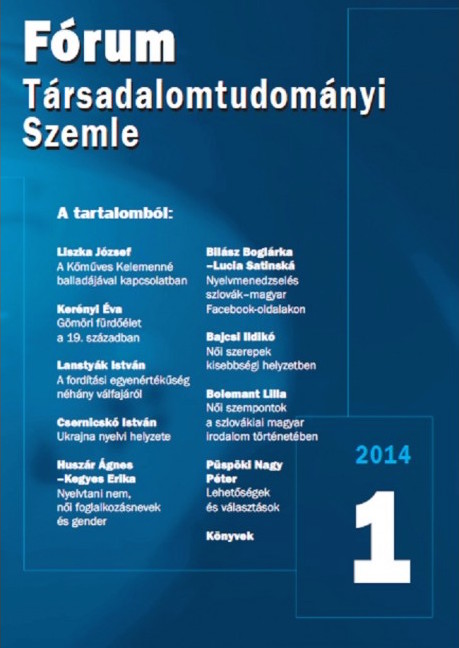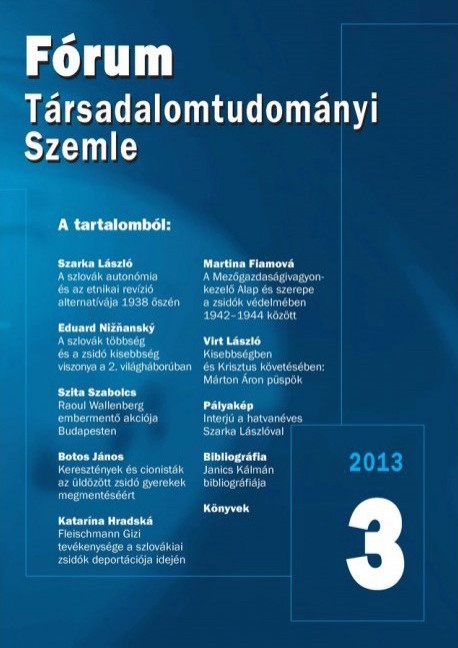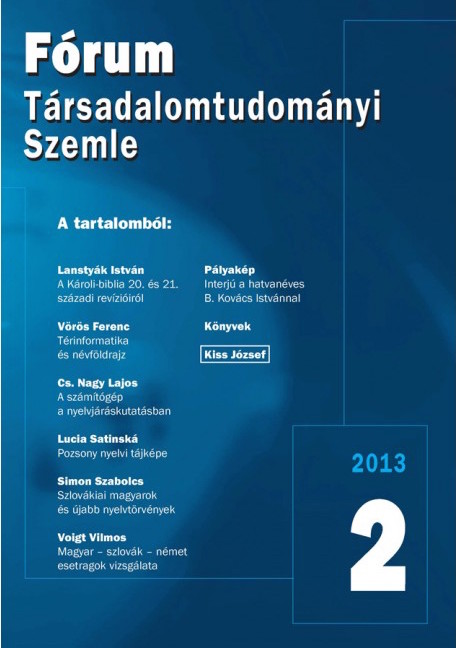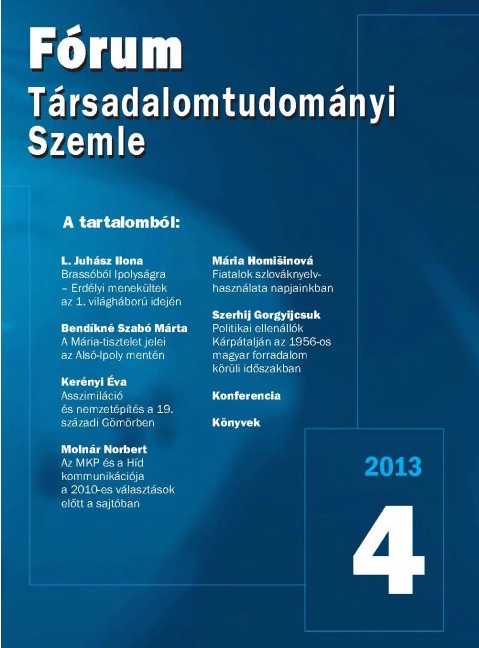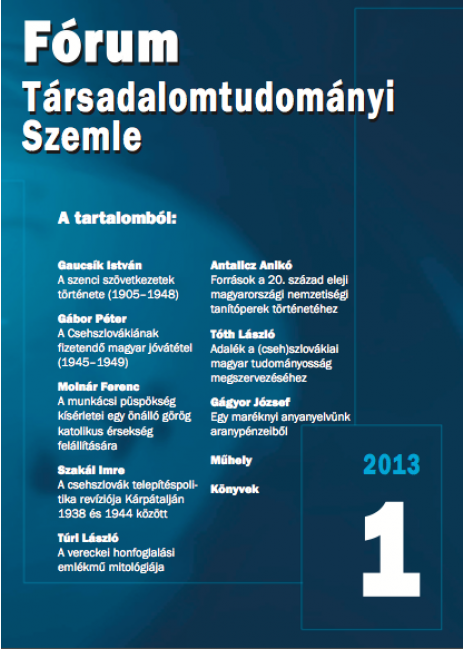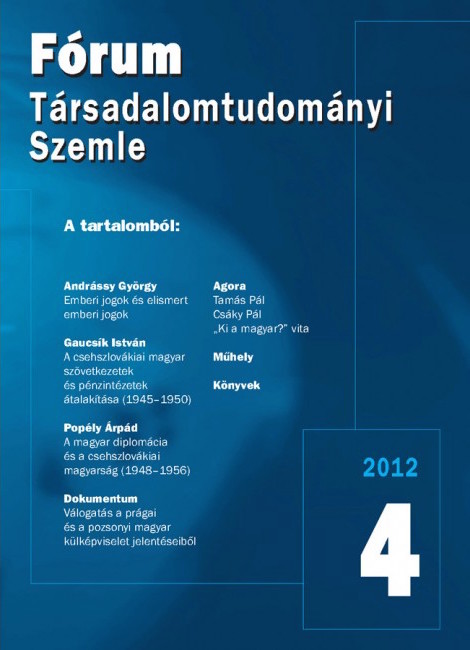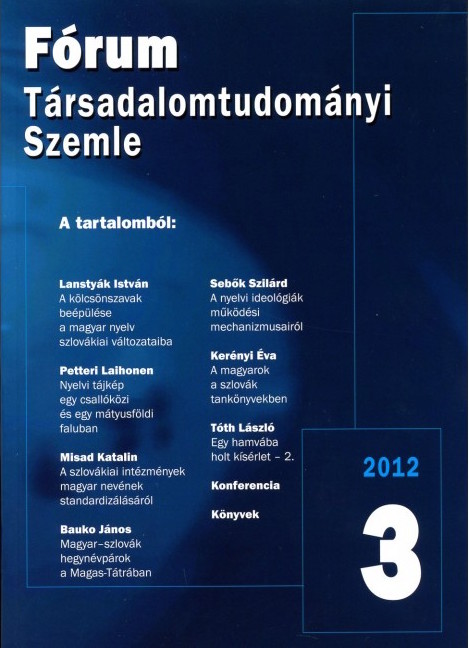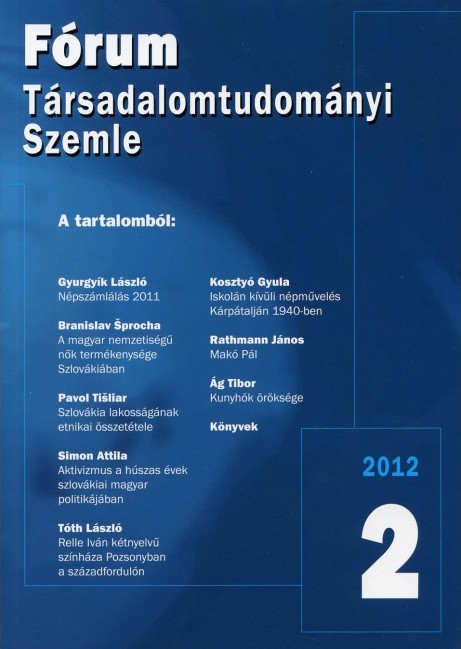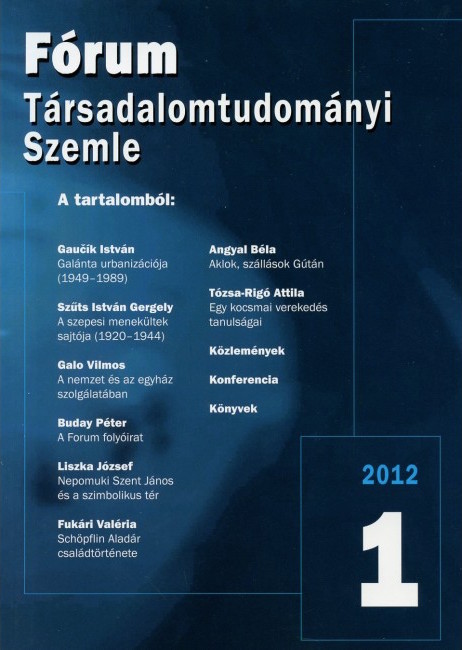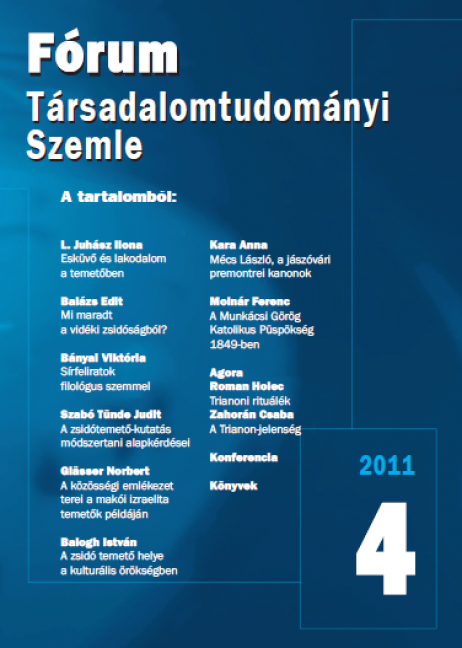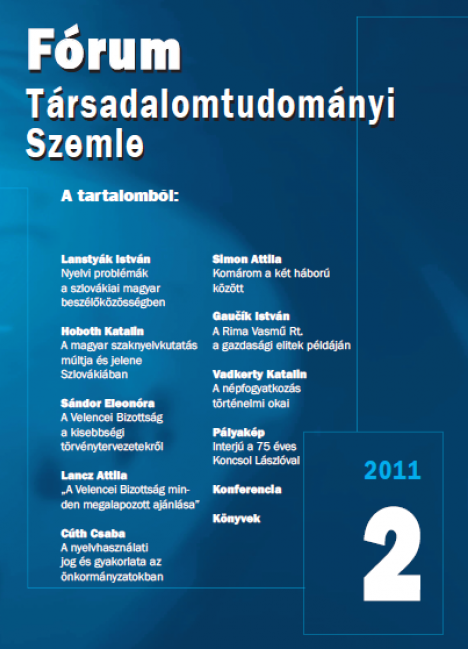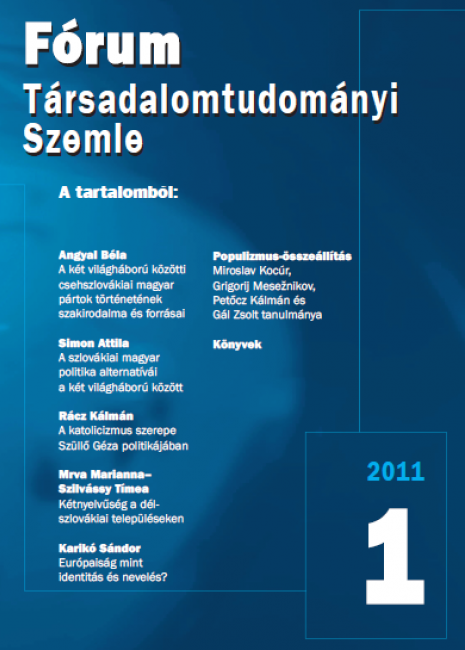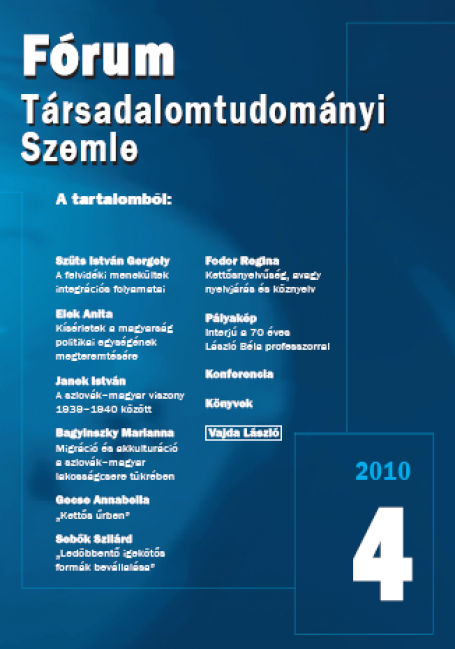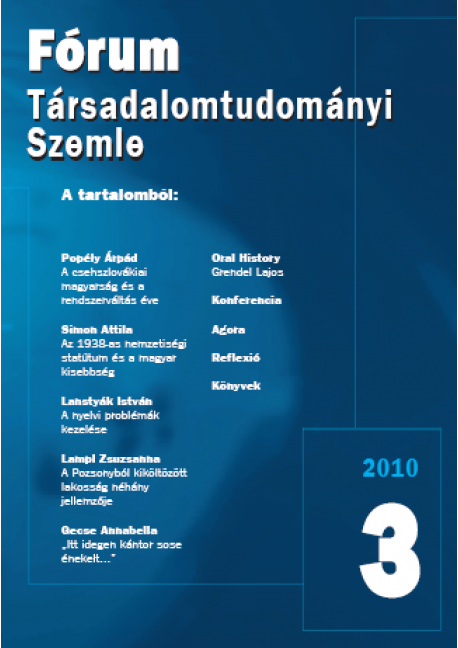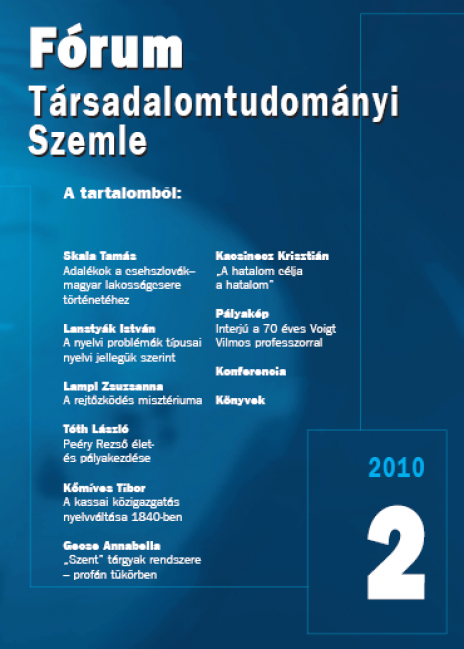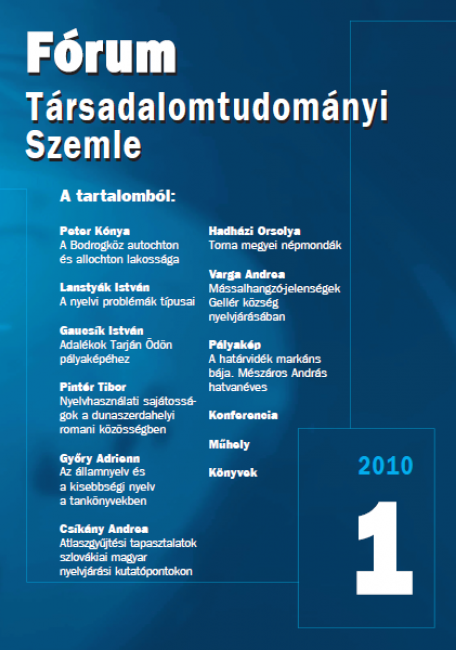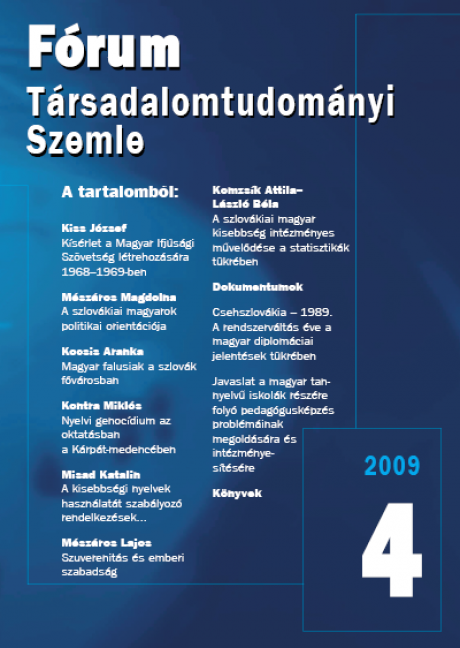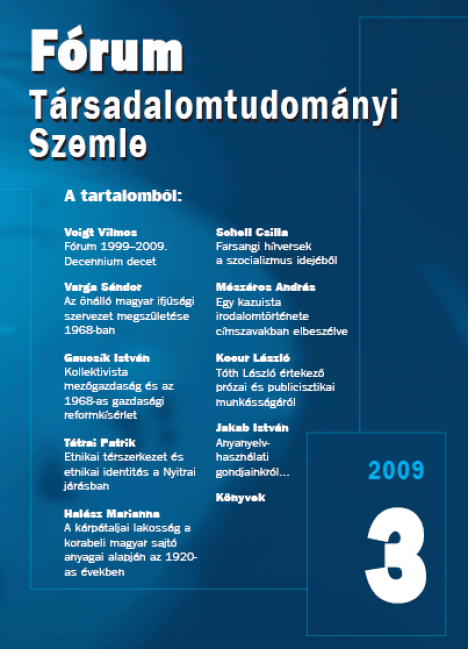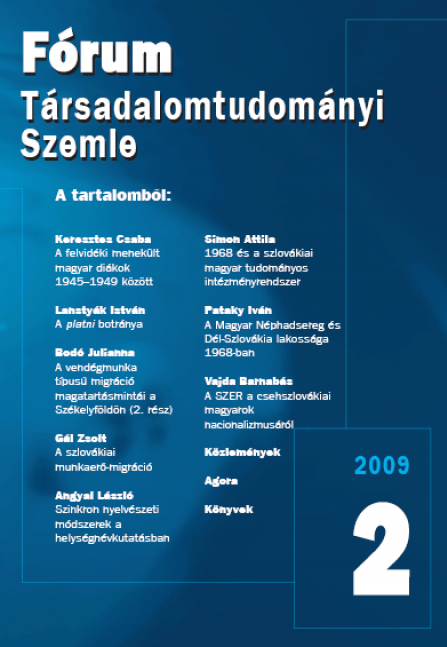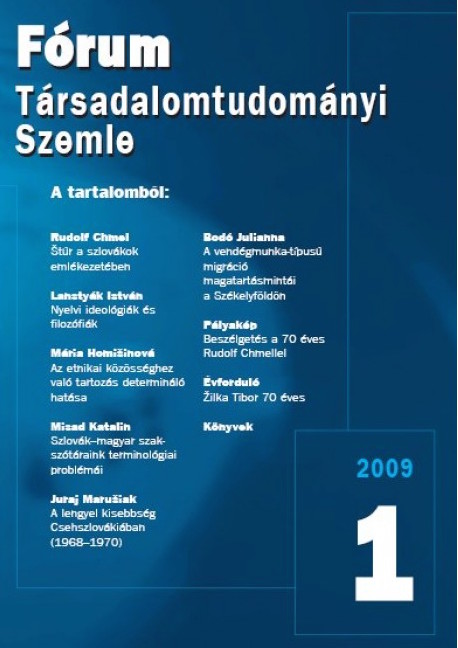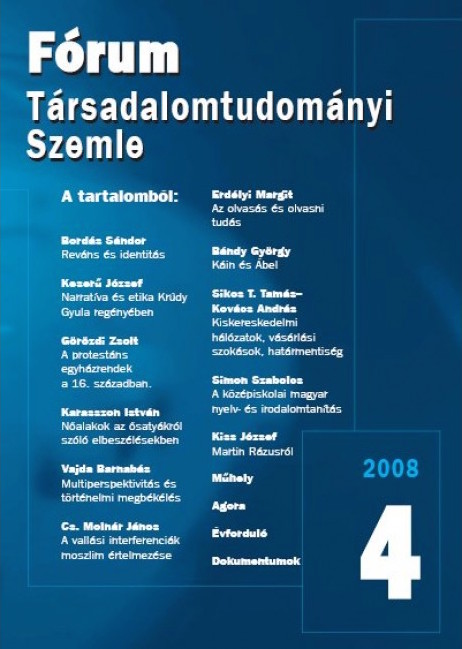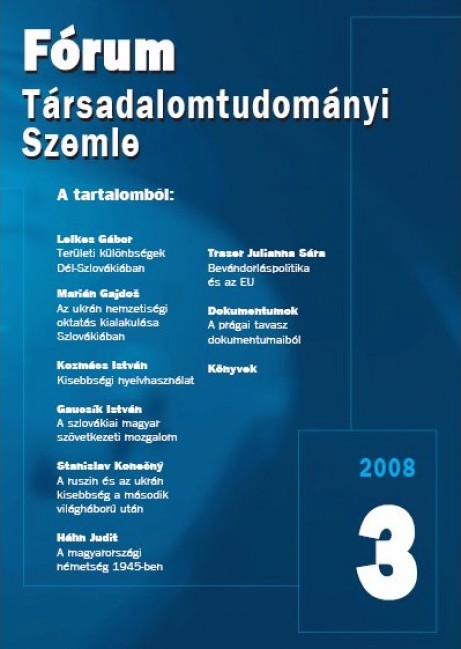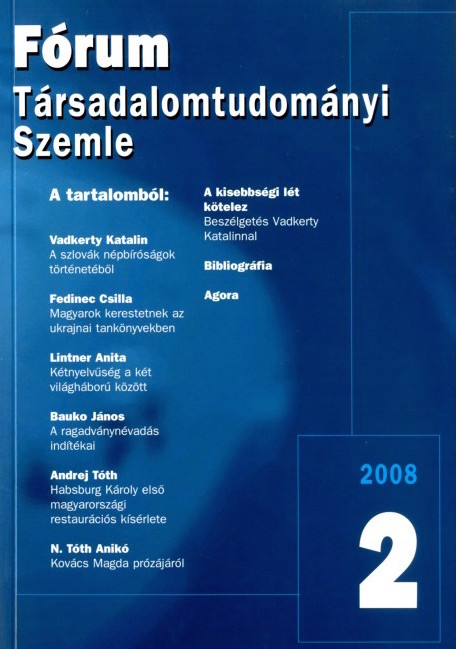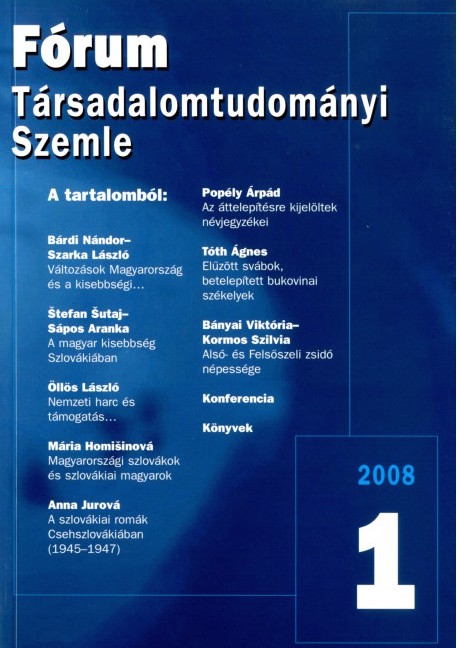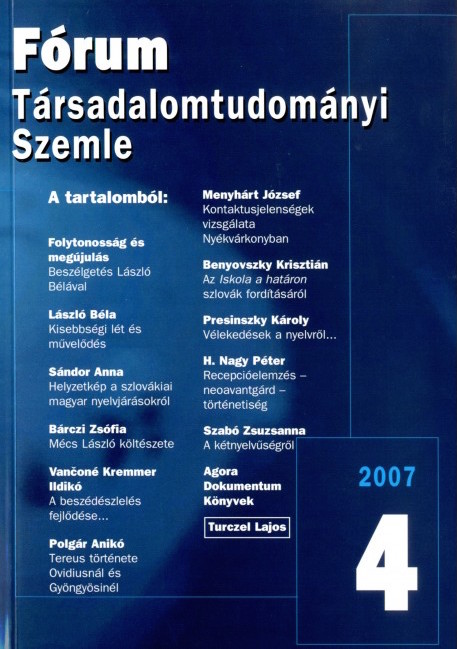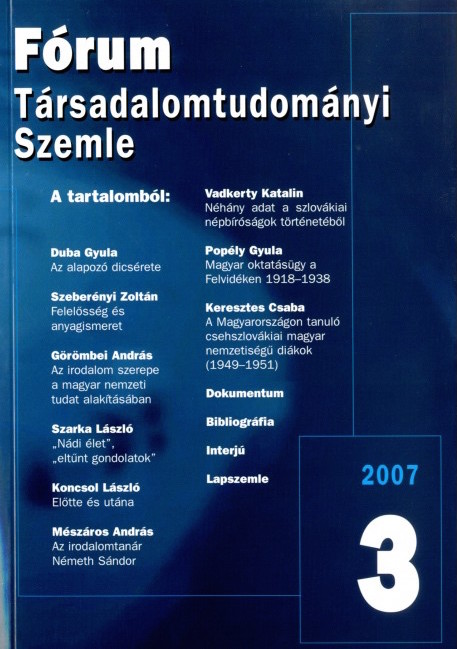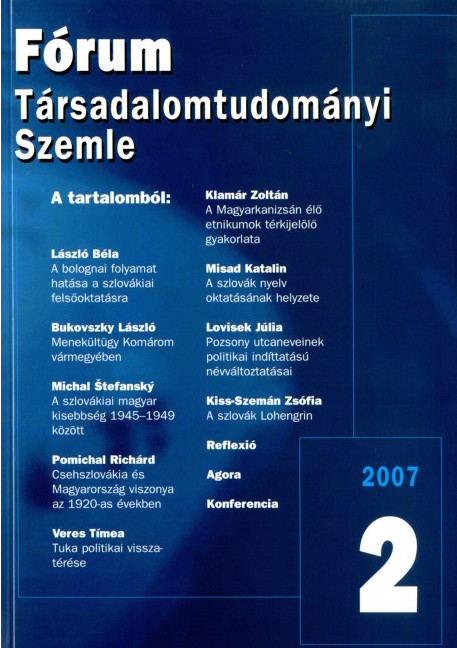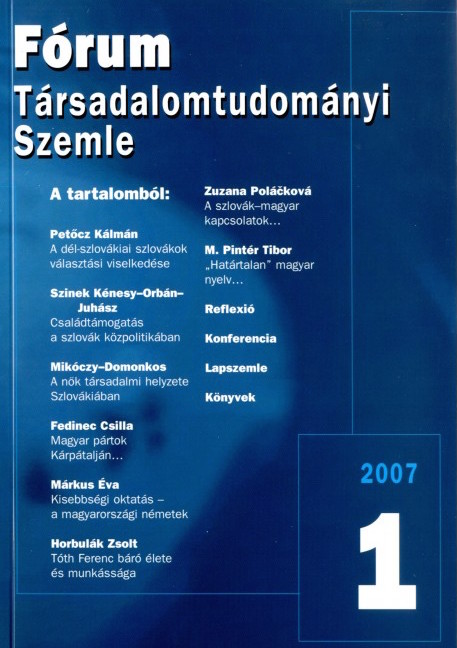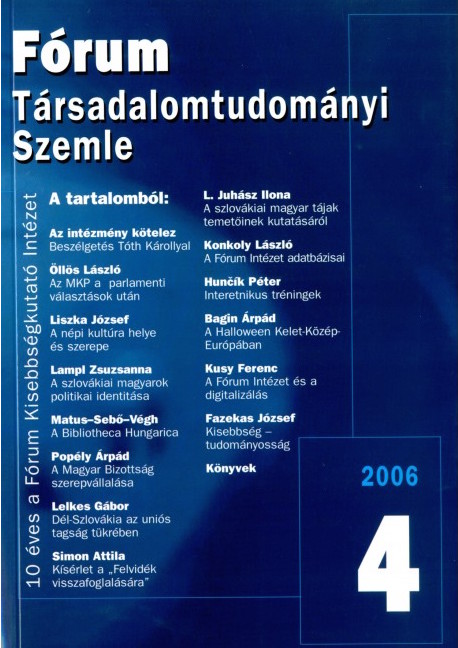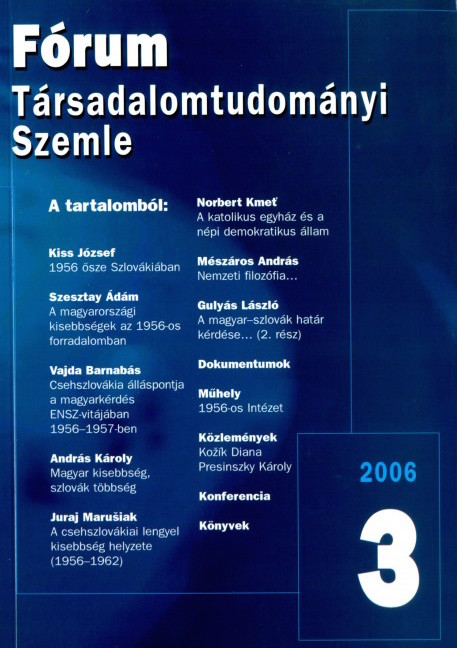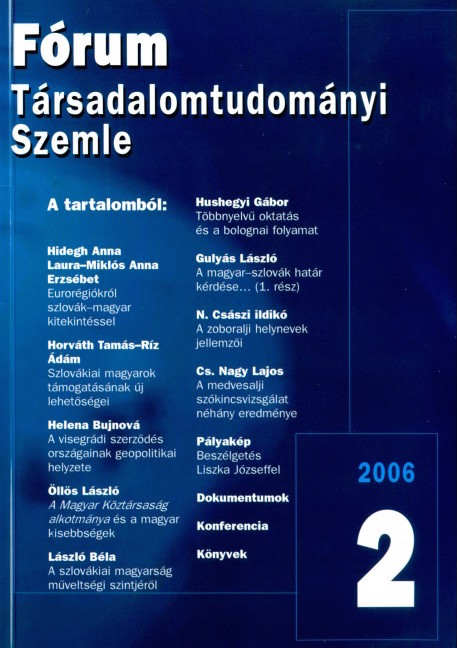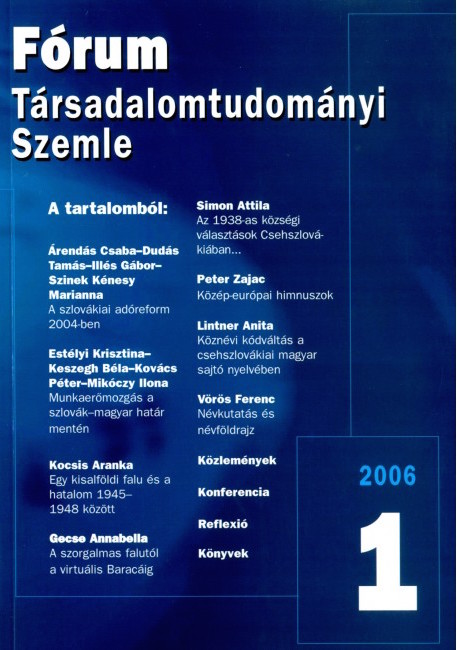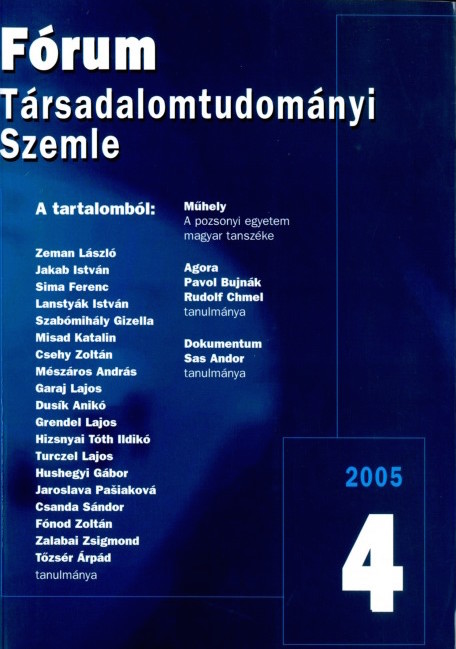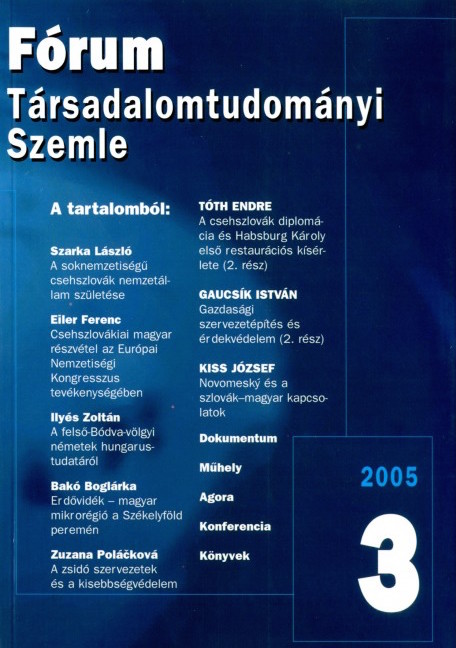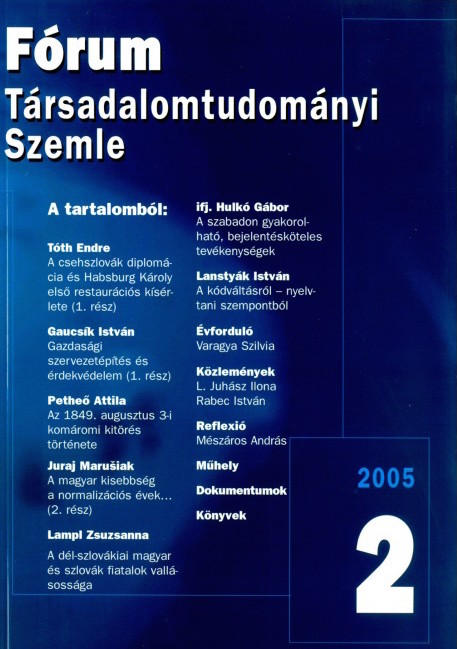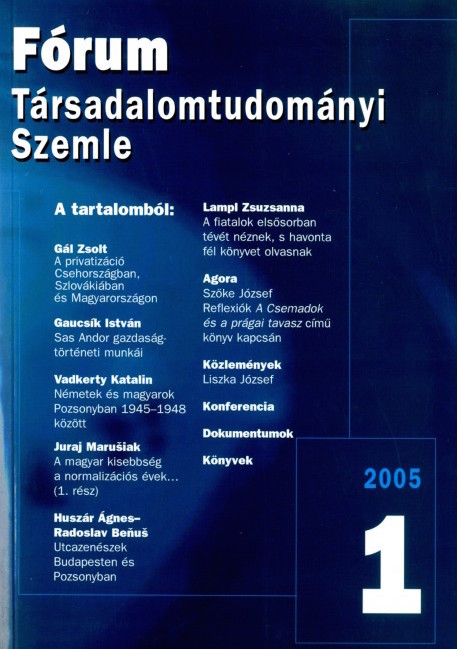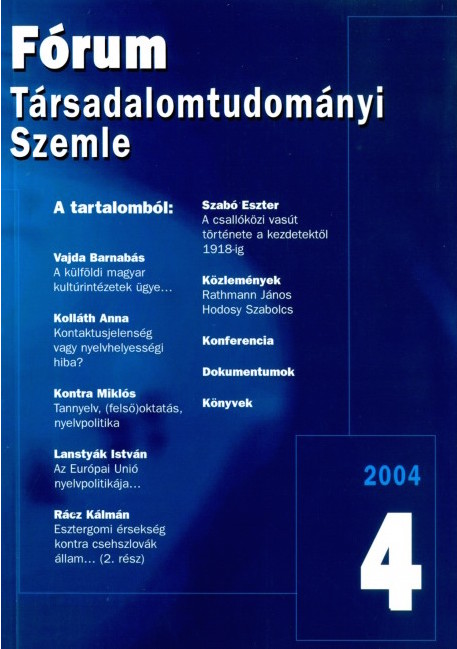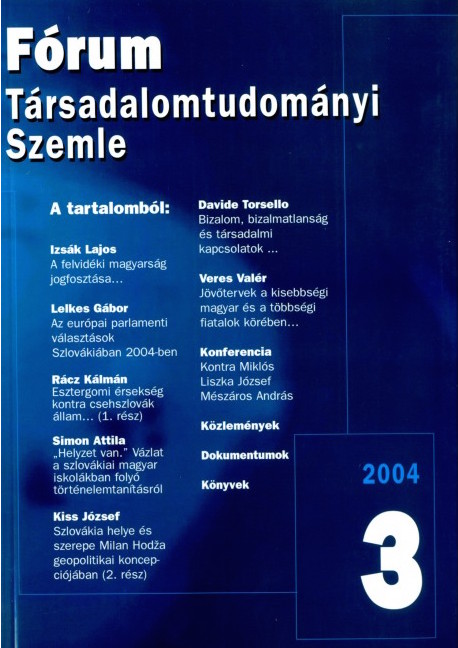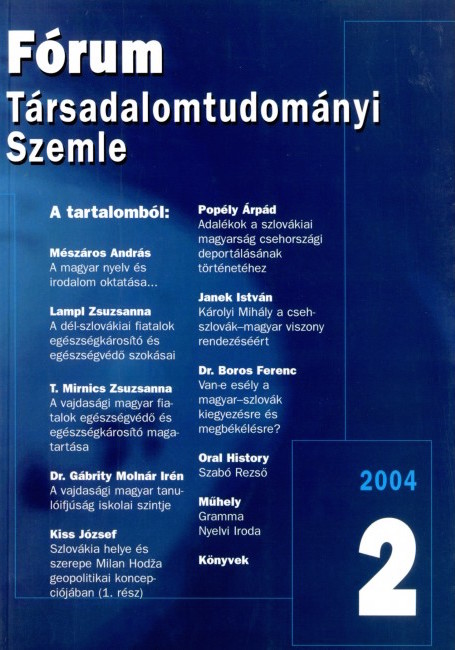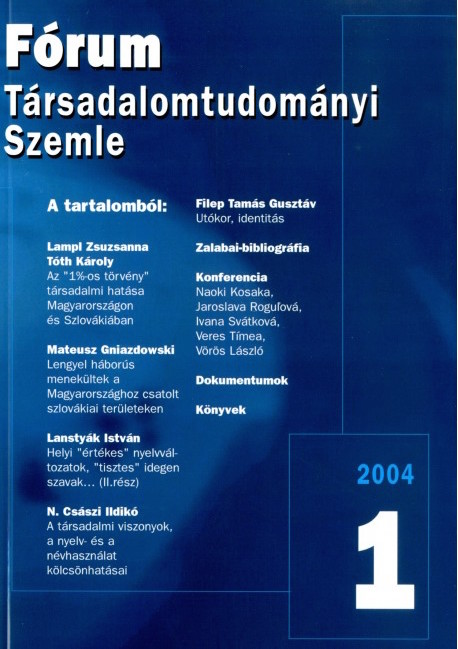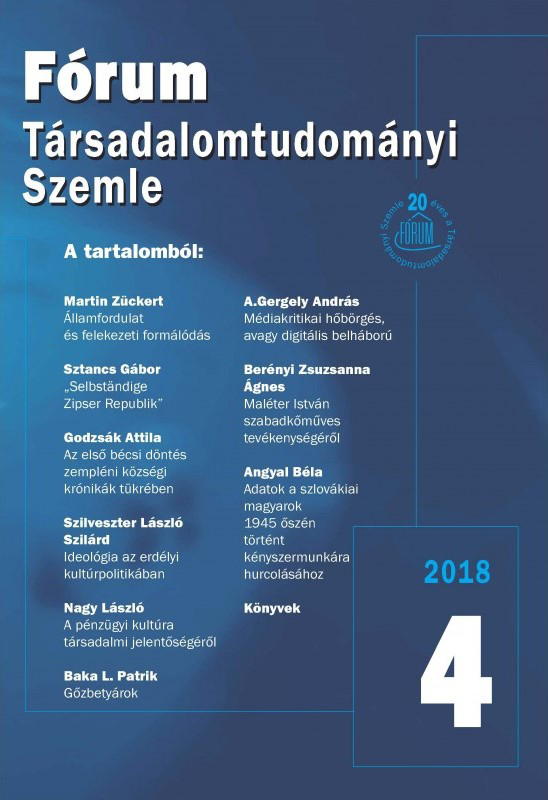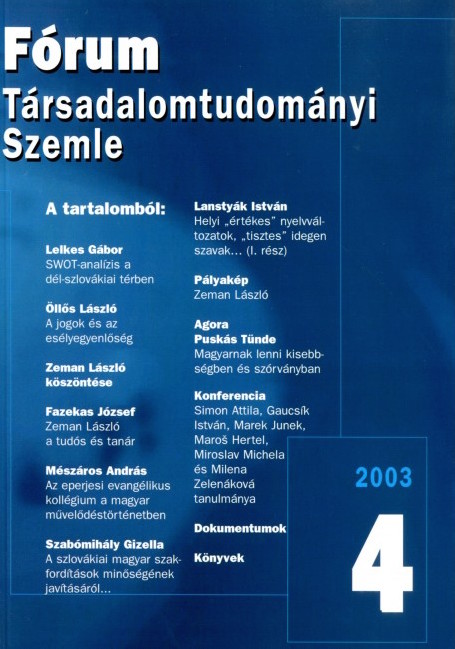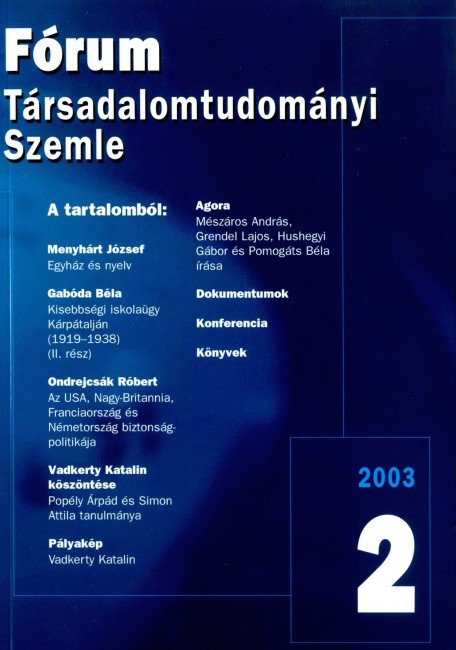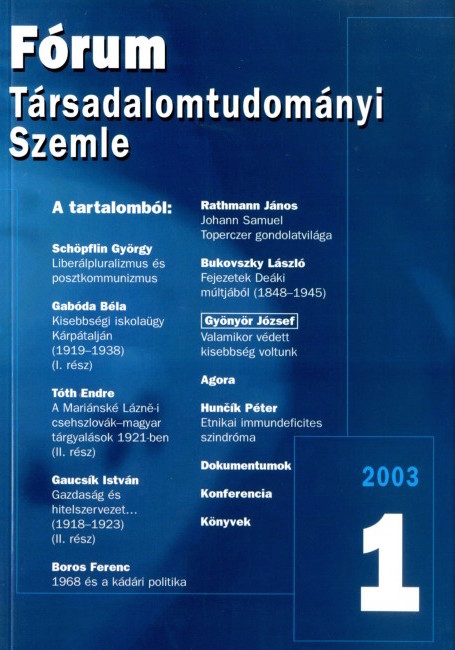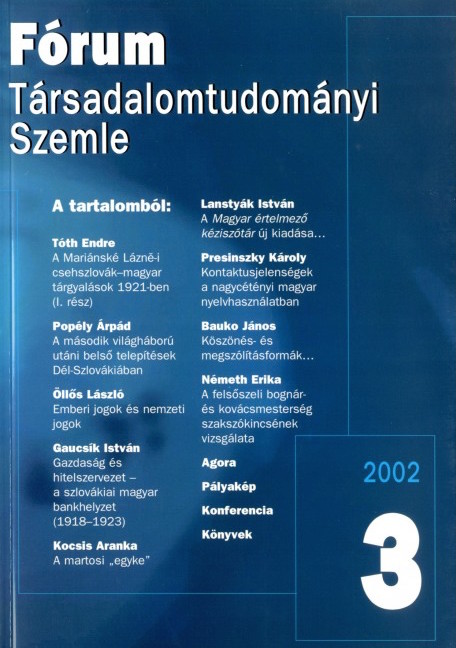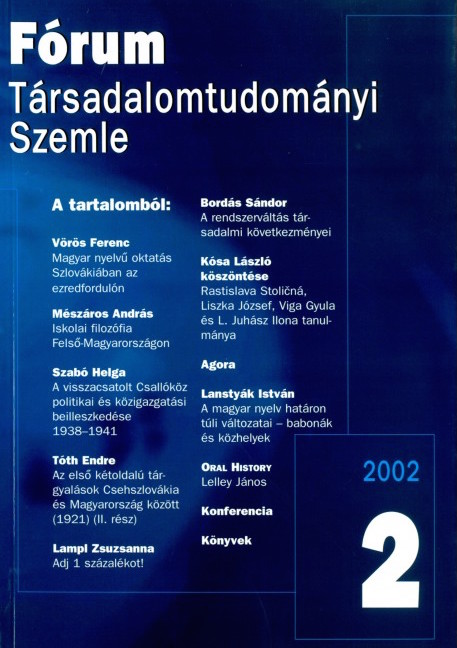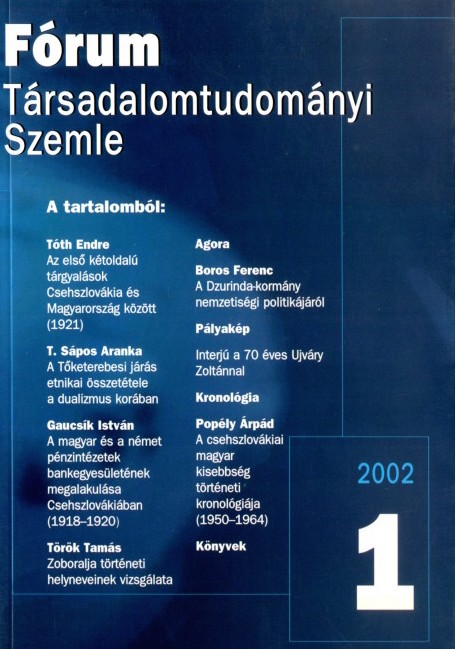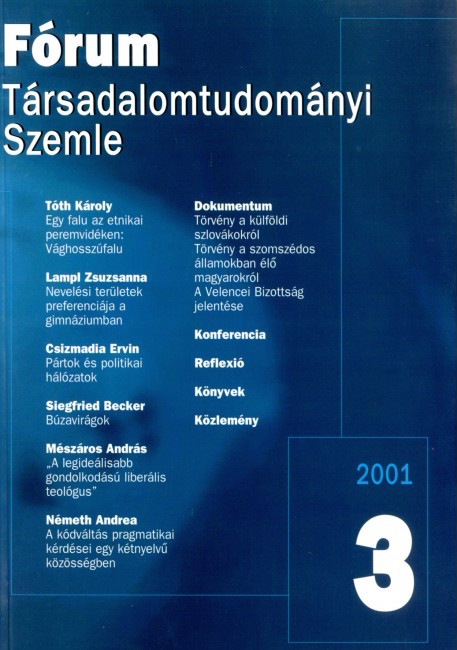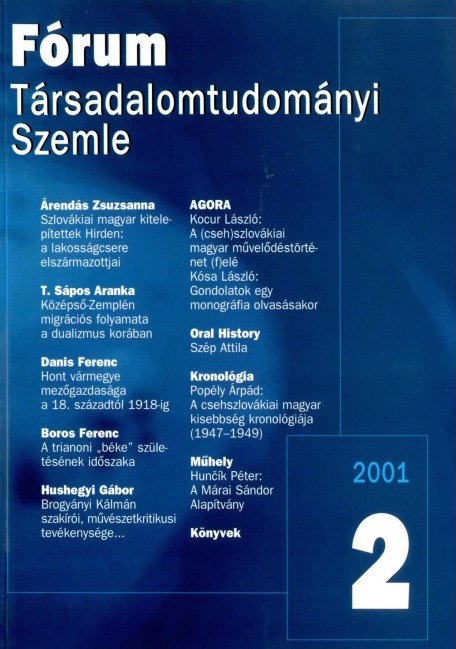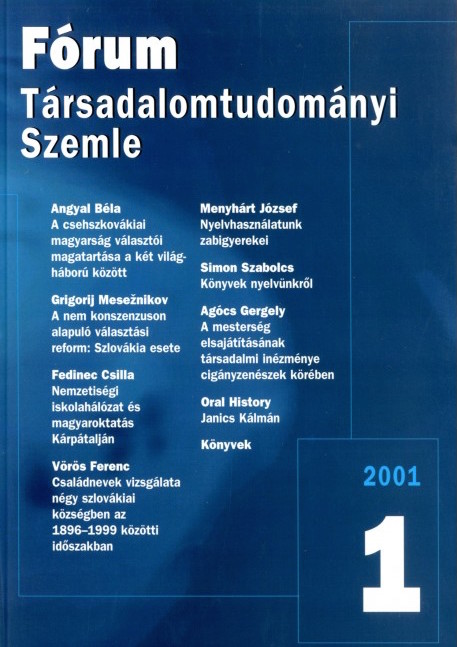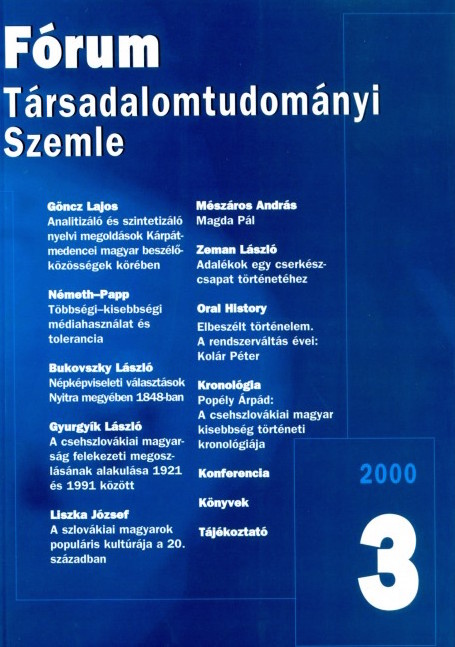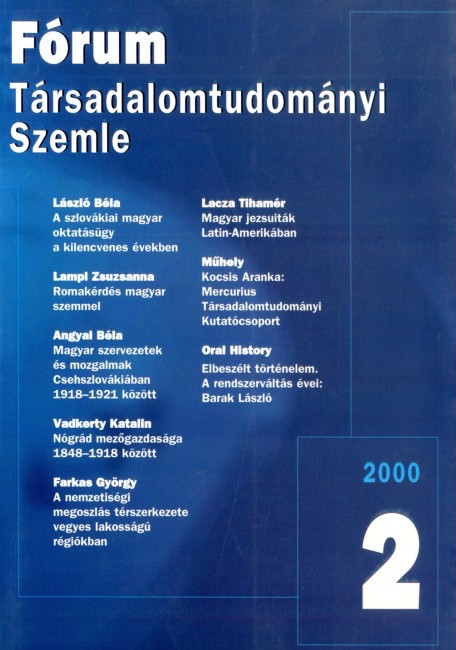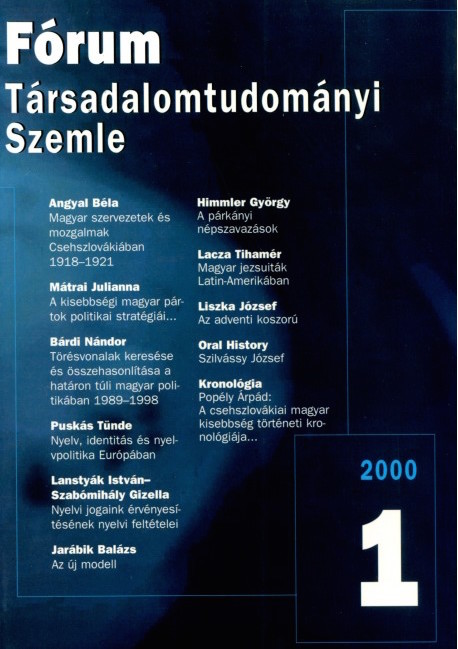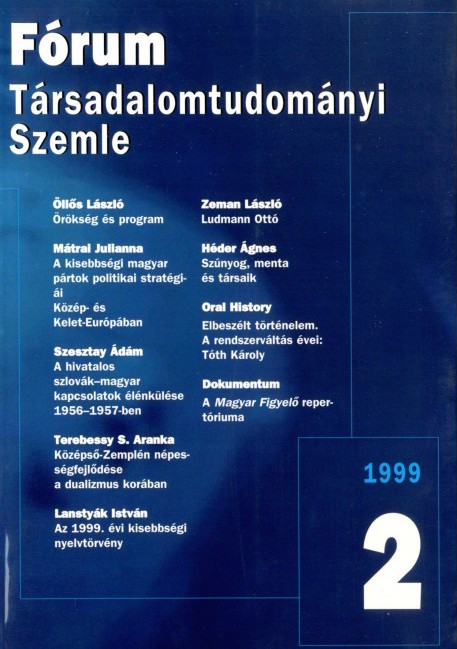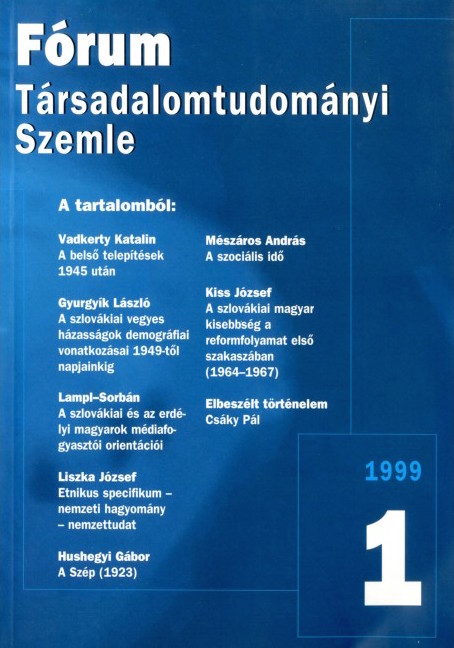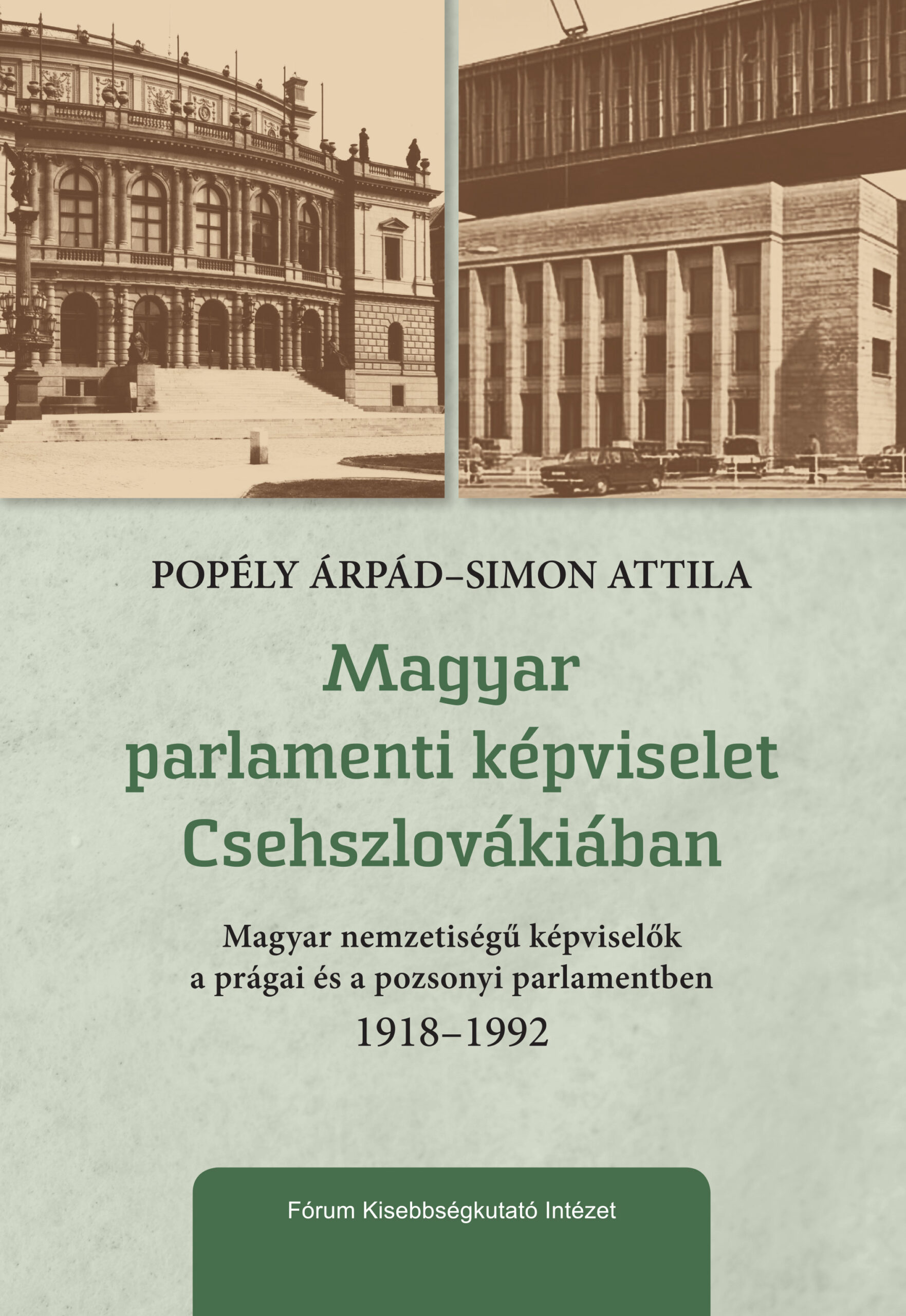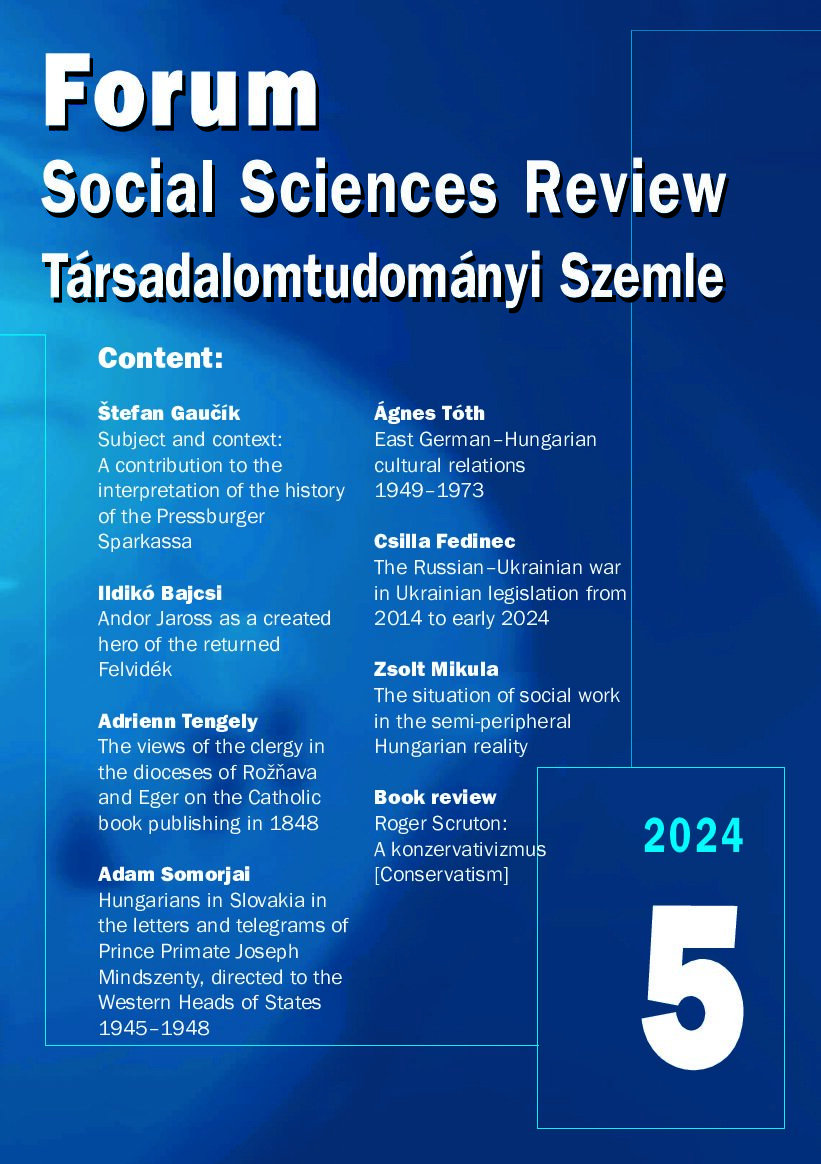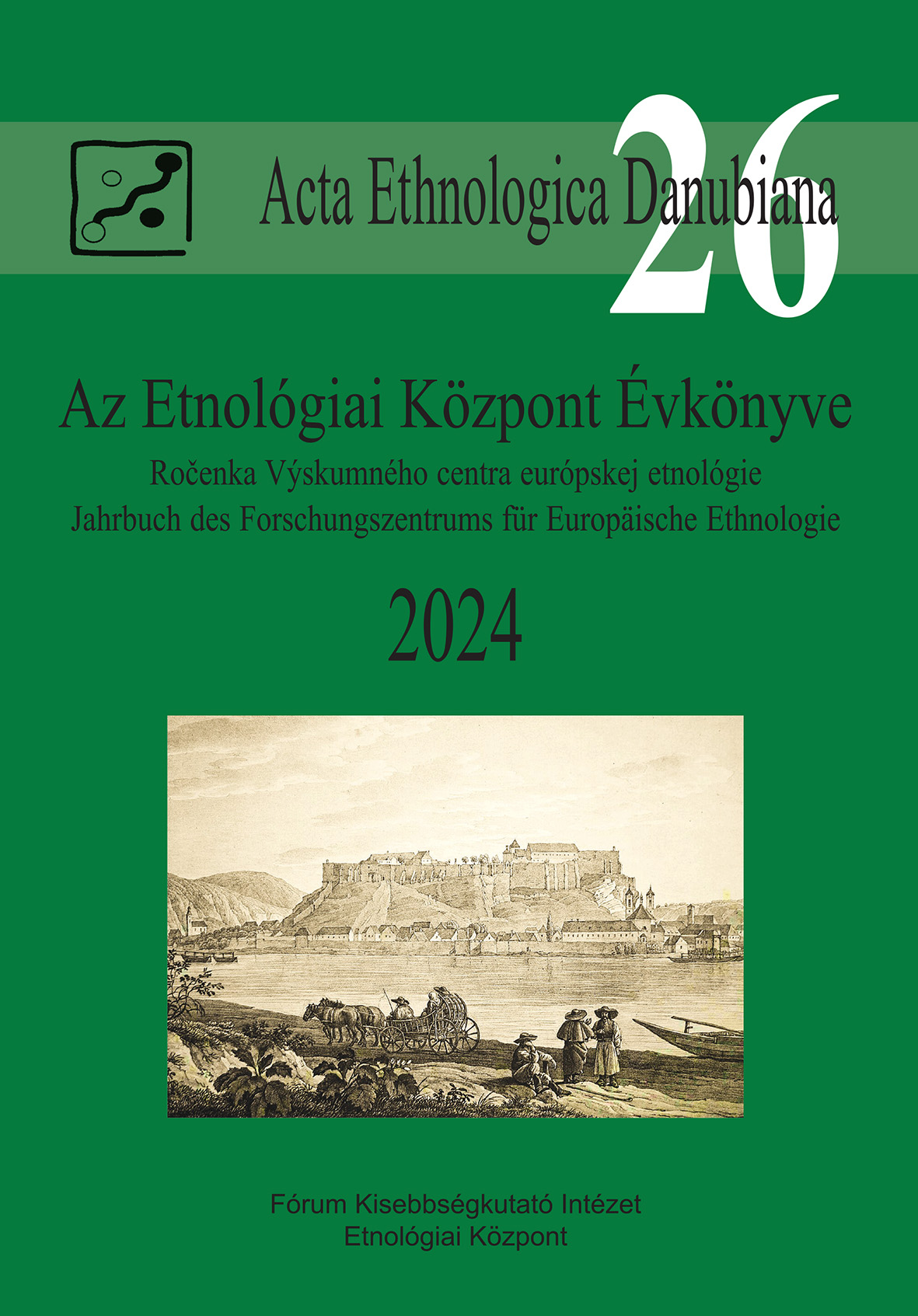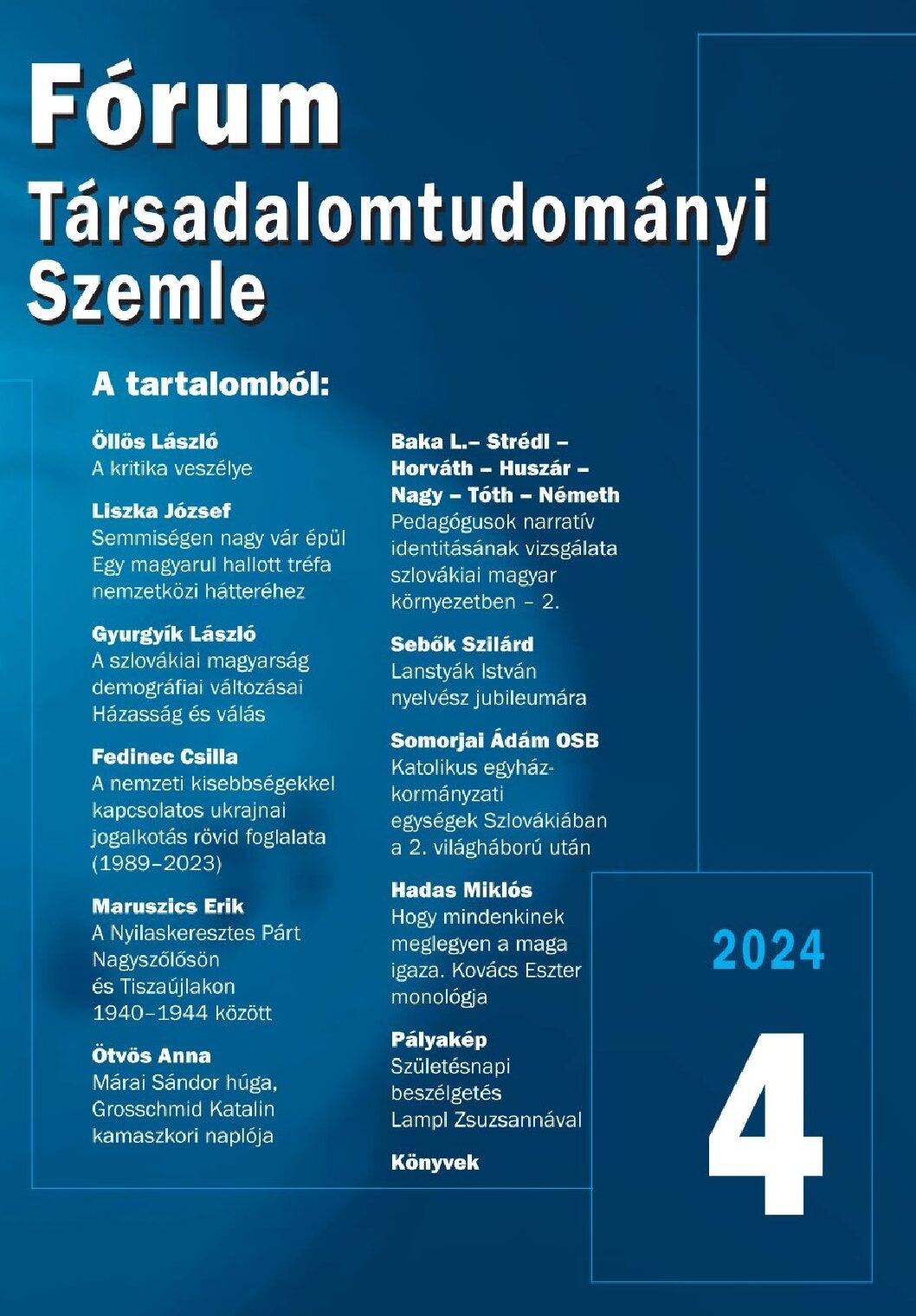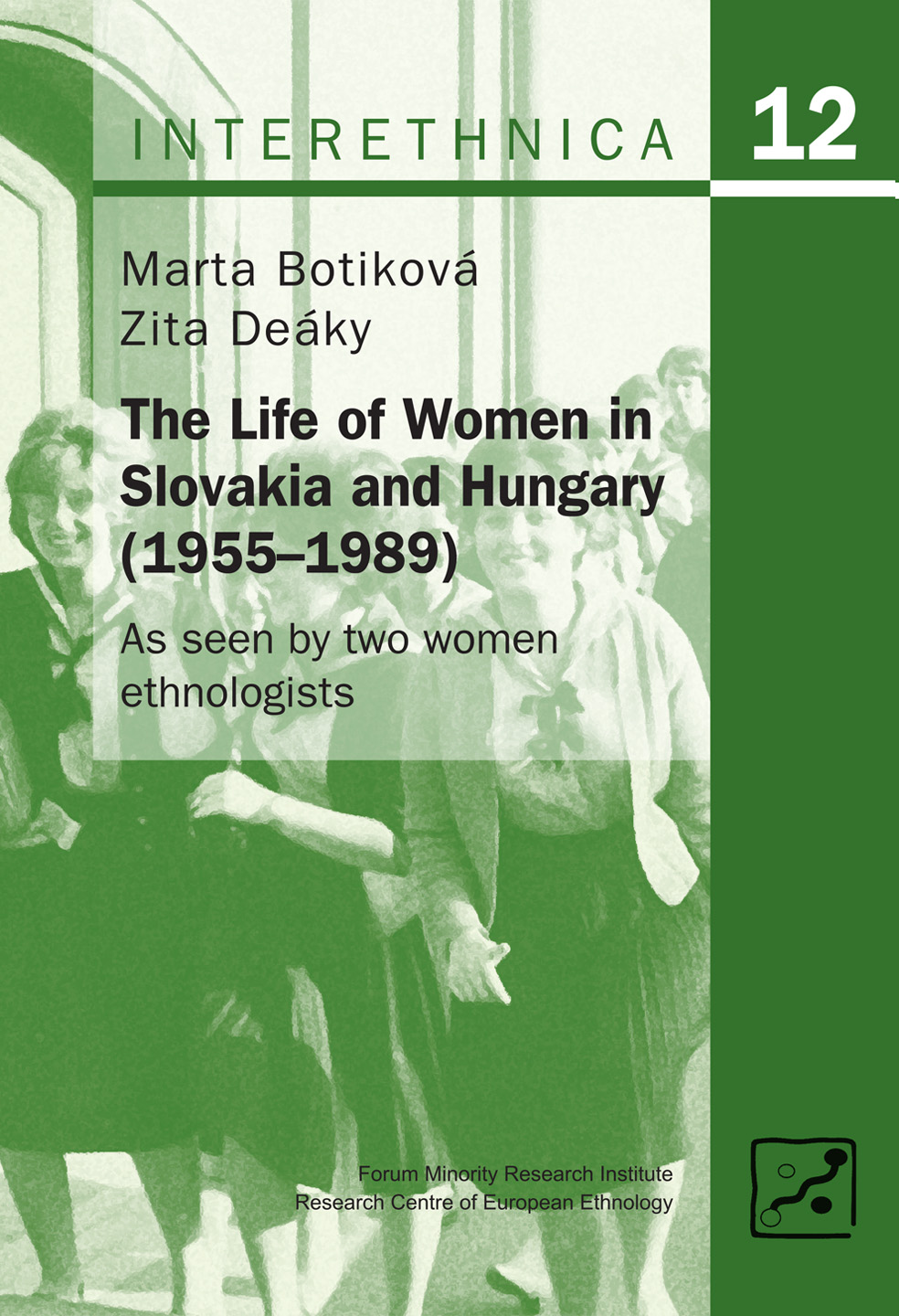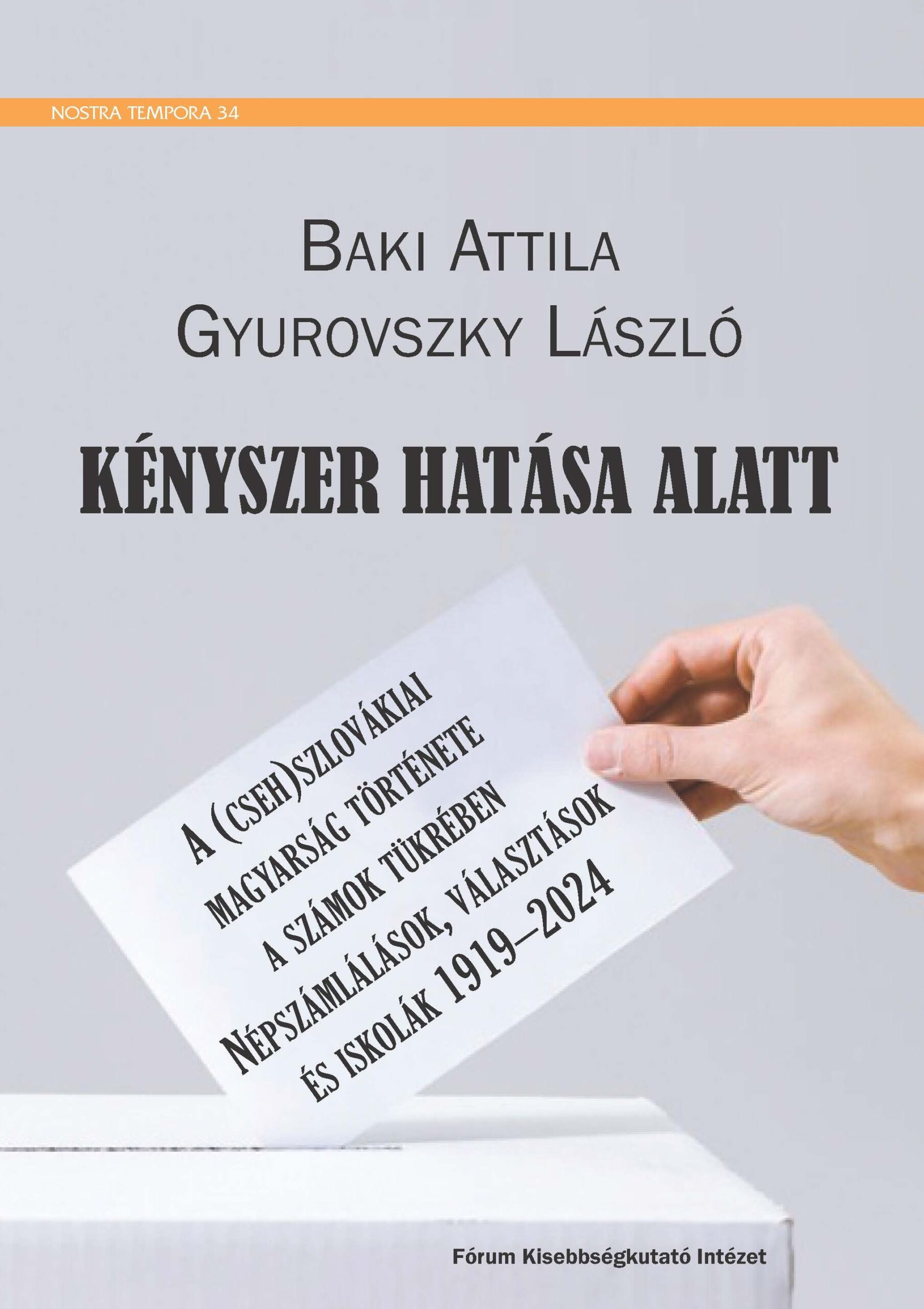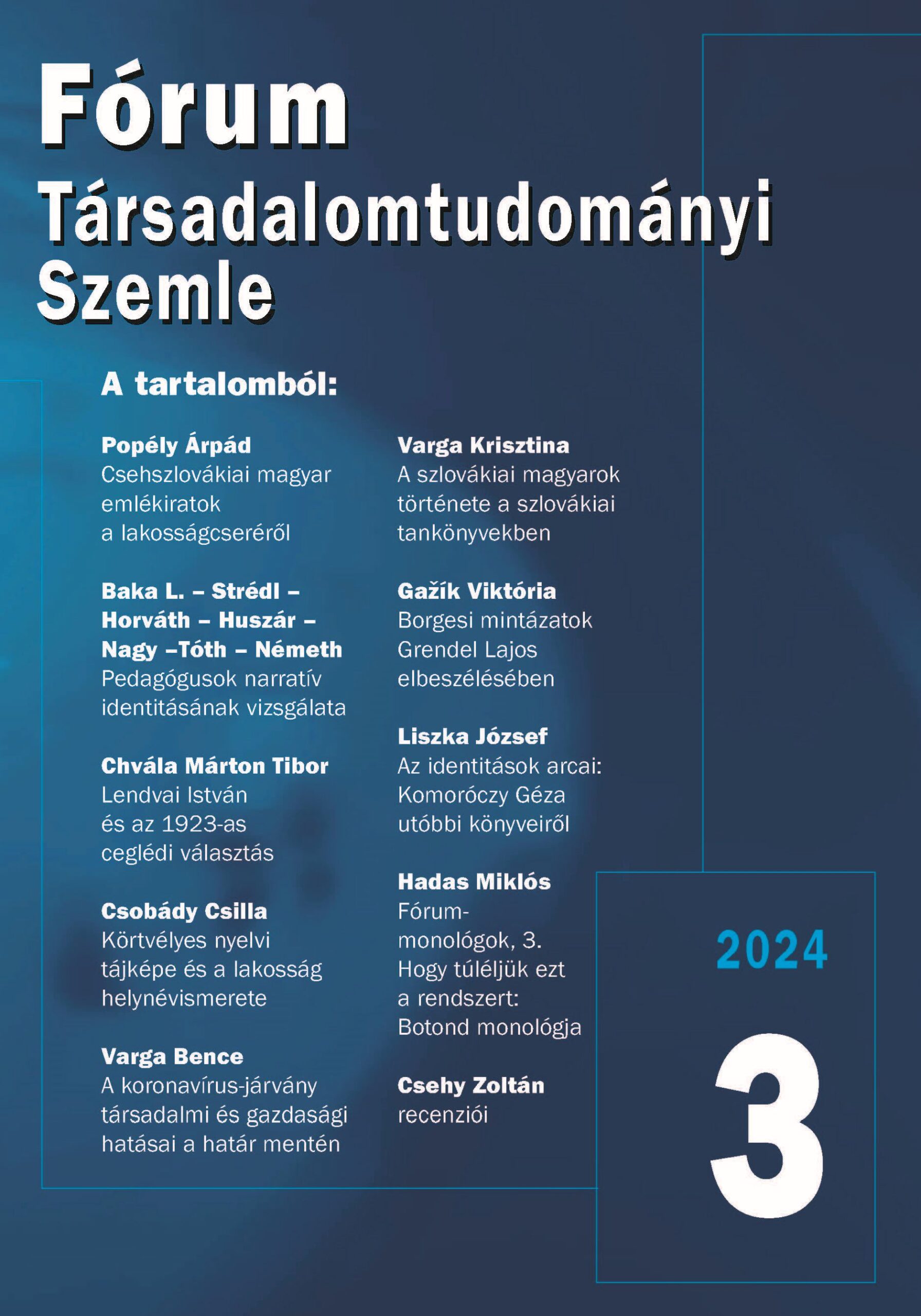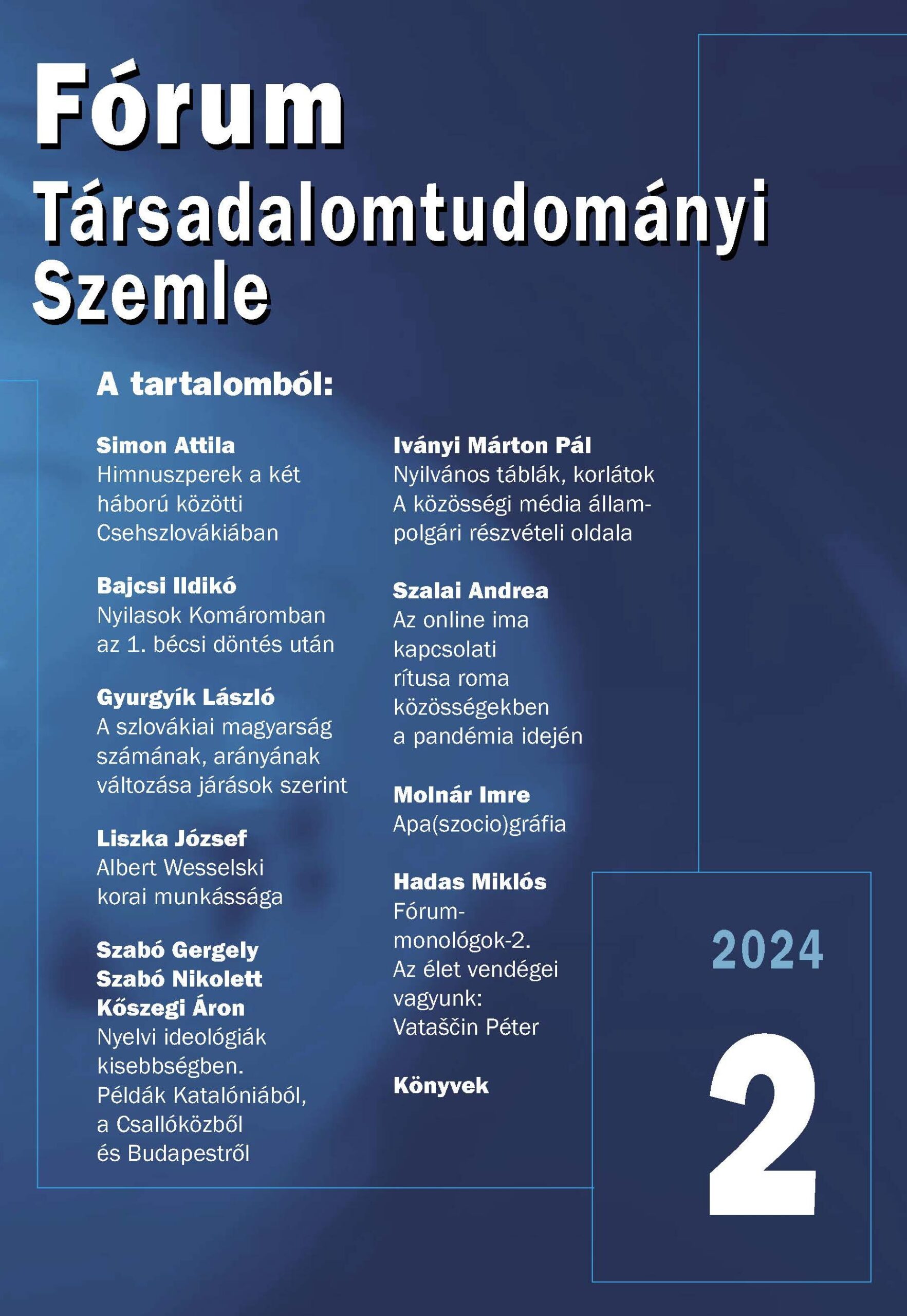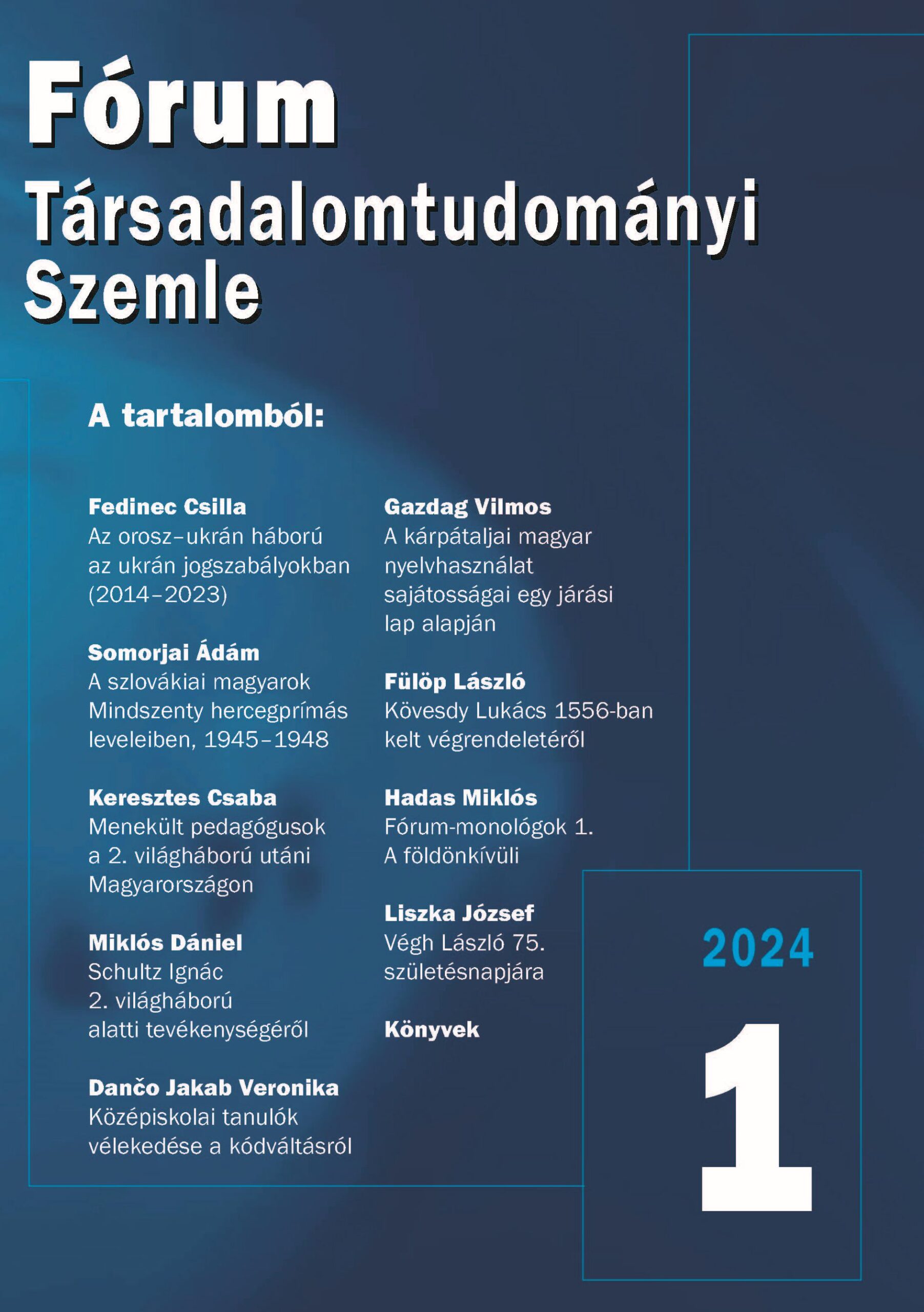Language Rights in Education and Administration in the Light of the Reports of the European Charter´s Committee of Experts
This study examines the commitments made by the four neighbouring countries of Hungary with the largest Hungarian minority communities (Romania, Slovakia, Serbia and Ukraine) during the ratification of the European Charter for Regional or Minority Languages in terms of Hungarian-language use in education, public administration and public services. It analyses on the basis of the latest reports of an independent international body, the Committee of Experts of the Council of Europe (issued between 2017 and 2019) how these states are fulfilling their commitments in practice. The analysis highlights that the four countries involved in the study do not fully meet their international commitments undertaken by the ratification of the Charter in the spirit of European integration in these two essential areas from the point of view of the language retention of their Hungarian minorities. In particular, the examined states lag behind in the practical application of the undertaken commitments in the field of the Hungarian language use in public administration. The analysis also shows that, of the four countries, Ukraine has met its commitments to the least extent.
Notes on the Concept of Mother Tongue
We have words and expressions about which most of us believe that we know and understand their exact meaning. I think these include the expression of mother tongue or native language. In the following paper I would like to show that (1) this expression is interpreted in many different ways and used in many different meanings by Hungarians, (2) there are significant differences between Hungarians living in Hungary and those living in neighbouring countries in this respect too, and (3) in case the concept (the notion) of this expression is unclarified, serious linguistic rights violations arise—in Hungary just as in the surrounding countries.
Variants for Self-determination in Sáros and Abaúj-Torna Counties. Case Study on the Regional Implications of the Collapse of Hungary and the Establishment of the Czechoslovak State at the End of 1918
As Minister for National Minorities of the Károlyi Government, Oszkár Jászi saw clearly that the eastern Slovak movement in north-eastern Hungary, like the republican vision in Szepes (Slovak: Spiš), was a powerless movement from the very beginning. Their governmental support would have only deepened domestic and foreign policy tensions. Their social base was very weak from the outset. In Sáros (Slovak: Šariš) and Szepes counties, it was equally a movement of Hungarian county elites worried about their positions, who wanted to use the given historical moment mainly for the preservation of their remaining way of life, wealth, and influence. At the same time, the role and the importance of Kassa (Slovak: Košice) and the activities of government commissioner Miklós Molnár were acknowledged in Budapest too, but they were confronted with the military weakness, diplomatic isolation and complete lack of support from the great powers to the historical Hungarian state facing disintegration. The Dvorčáks, by proclaiming on behalf of the “Eastern Slovaks” their “people’s republic” that was not registered by anyone and remained unnoticed even locally, actually accelerated the Czechoslovak military occupation of the region. In the case of Kassa, it can be concluded that the city’s leadership in November–December 1918 had to find solutions to increasingly serious problems in a difficult situation. As government commissioner, Miklós Molnár repeatedly asked the Budapest government to send troops to defend the city against Czechoslovak legions and to help keep the city in Hungarian hands. Sensing the changed political situation, the unresolved public order and security problems, the city leadership instructed Miklós Molnár to negotiate with the leaders of the Czechoslovak state and army on the temporary occupation of the city by Czechoslovakia until the decision of the peace conference.
Examination of Party Preferences of Slovak Municipalities in the Southern Great Plain (1931–1947)
This paper presents the first results of a larger study. The research attempts to examine the party preferences and attitudes of Slovaks in Hungary, especially focusing on 1939, as it is demonstrably different from that of other national minorities, and where it does not differ, we can find that we cannot speak about ethnic-based voting in their case. The research uses the methodologies of political geography and election research. As this study is the first one on the research, it presents the methodological bases and publications that can be considered as research antecedents conducted by others. It also attempts to analyse the 1939 election results of the Slovak diaspora in the Southern Great Planes, and, as a control, it also examines the elections of 1931, 1935, 1945 and 1947, comparing the results of the two constituencies inhabited in part by Slovak population with the results of municipalities with Slovak majority population and with the national results. The first results already include unexpected data beyond the margin of error that require further examination.
“Parallel Stories.” Excusing Myself, or the Confession of an Optimistic Fatalist
This study is a summary of a professional resume and a thirty-year history of a philosophical discipline. Its topic is the identification of methodological innovations in the historiography of Hungarian philosophy from the point of view of whether this story can be written as a unified narrative. It shows the process by which this historiography leaves the former positivist and Marxist perspectives and the way how it rearranges the canon. In the meantime, it also names the most important players in the canon revision. Finally, it comes to a partially proven hypothesis, according to which the history of Hungarian philosophy can be understood as the history of discourse forms.
The Impact of Gender and Ethnicity on the Opportunities of Ethnic Minority Women in the Serbian Higher Education System
This study aims to examine the opportunities of women belonging to three ethnic minorities—Hungarian, Slovak, and Romanian—in the Serbian higher education system in the light of career building and obtaining decision-making positions (rector, vice-rector, dean, management department, etc.). The author seeks answers to two questions: what difficulties do ethnic minority women face in building a university career, and whether they can hold academic positions in the university hierarchy. The analysis is based on sixteen semi-structured interviews with Hungarian, Slovak, and Romanian female university staff members in Serbia, with intersectionality as the theoretical framework and method. The analysis of the interviews showed that the majority of respondents think that women from minority communities face difficulties in building a university career due to invisible barriers. However, the respondents were confident that women from the above-mentioned minority communities can hold decision-making positions in the Serbian higher education system, but the analysis showed that these women could reach decision-making positions within their own ethnic enclaves, especially in female-dominated departments, without particular difficulty. But, with this exception, higher positions are rarely available to them.



